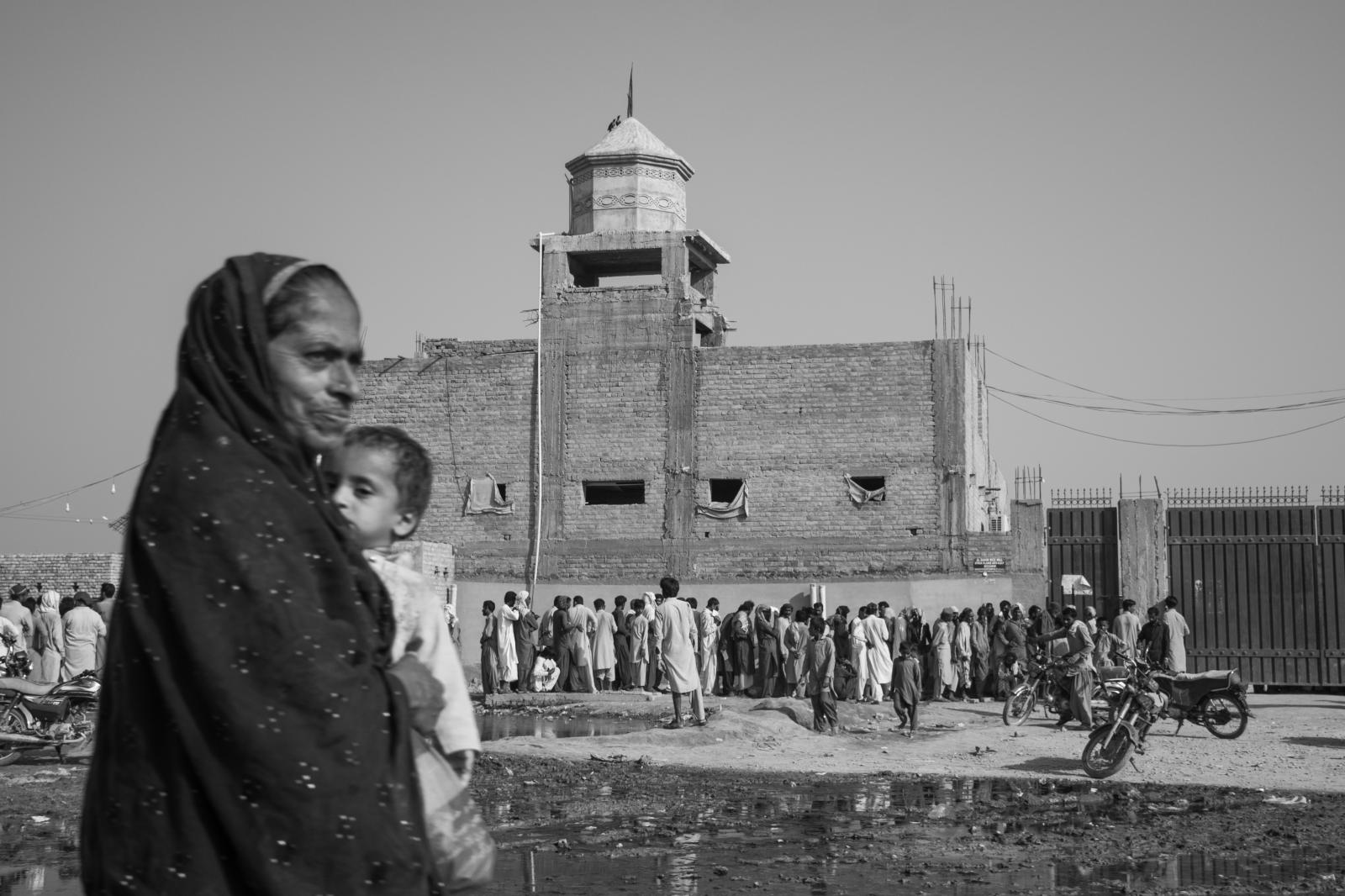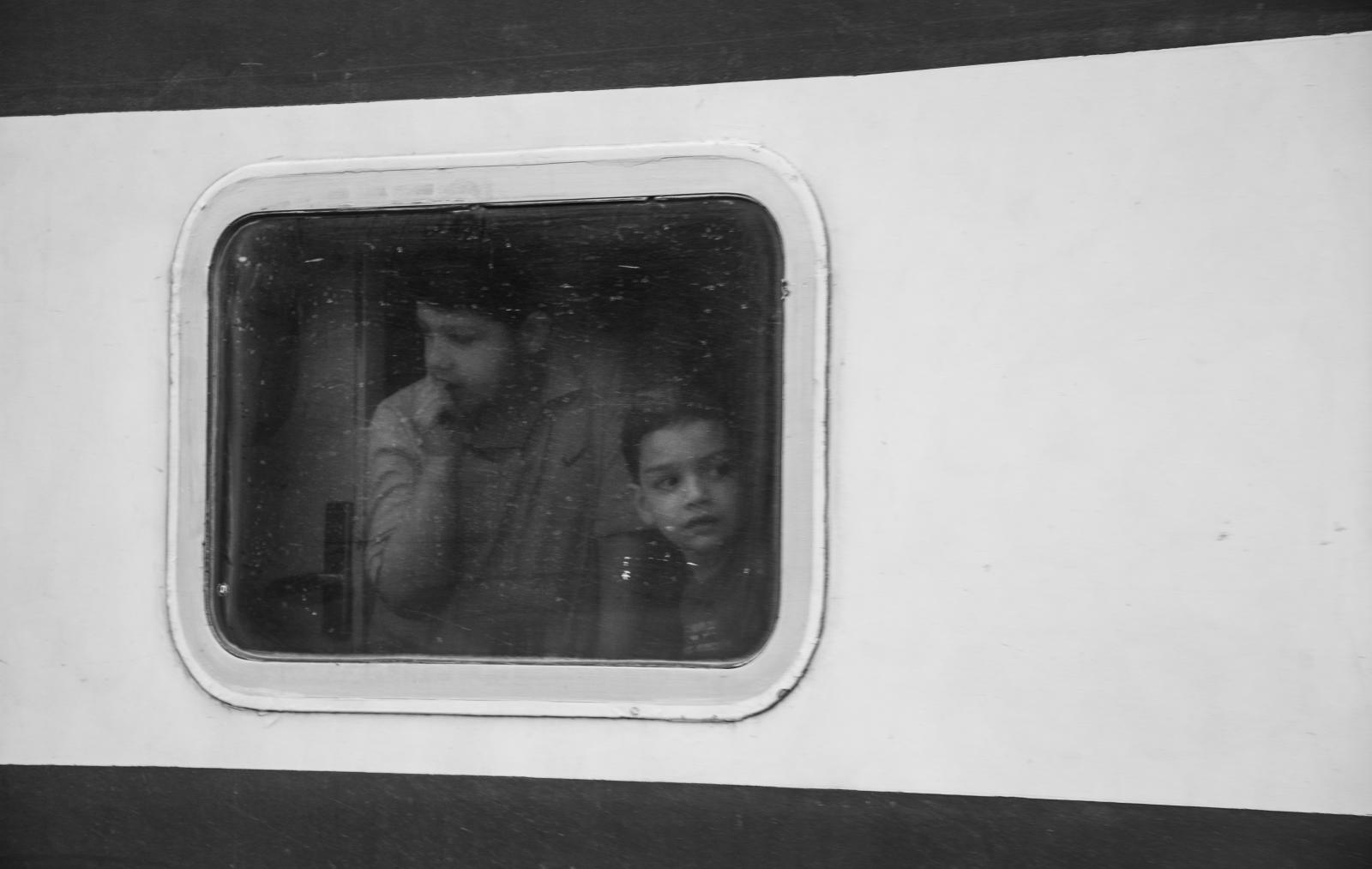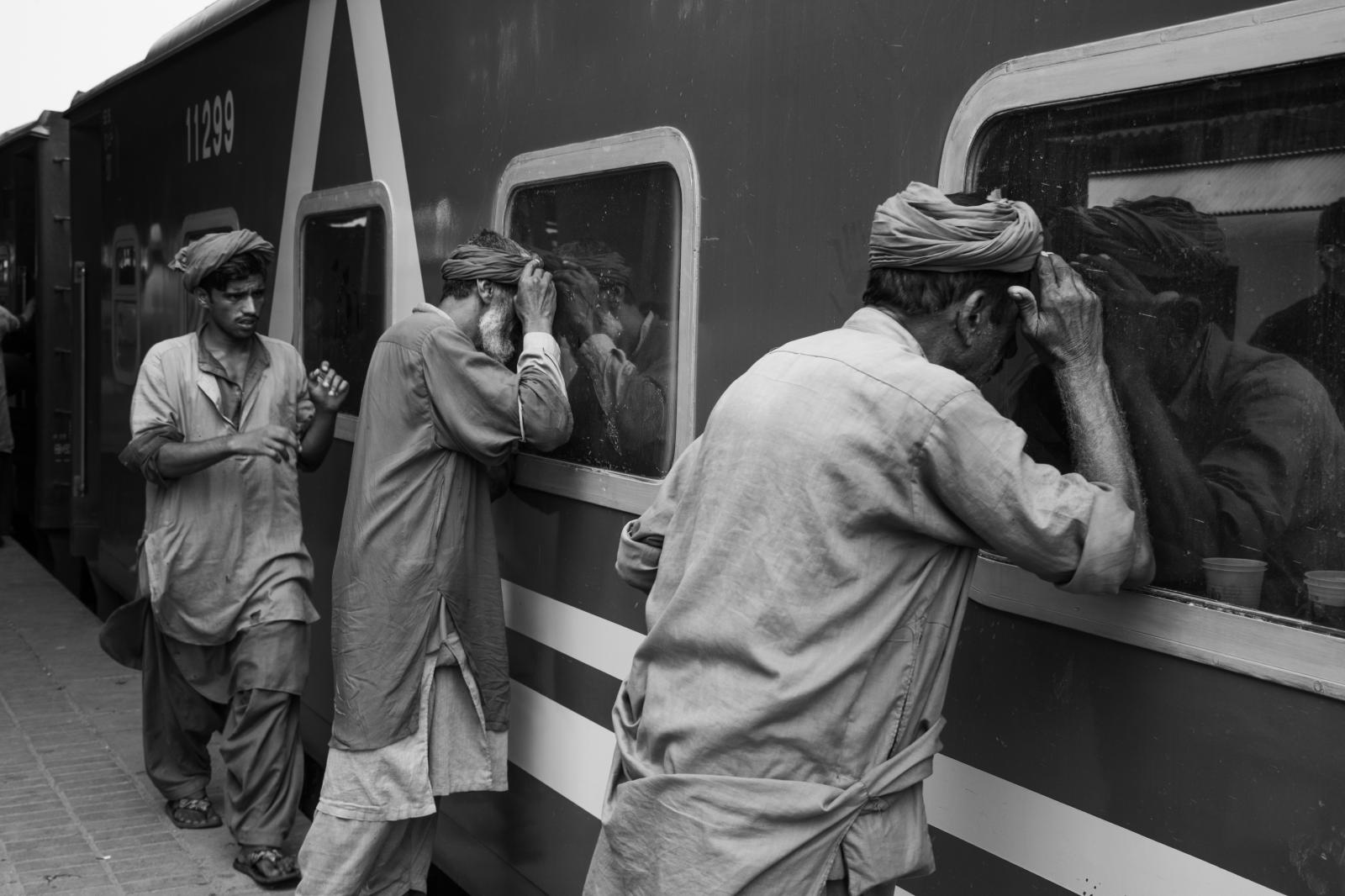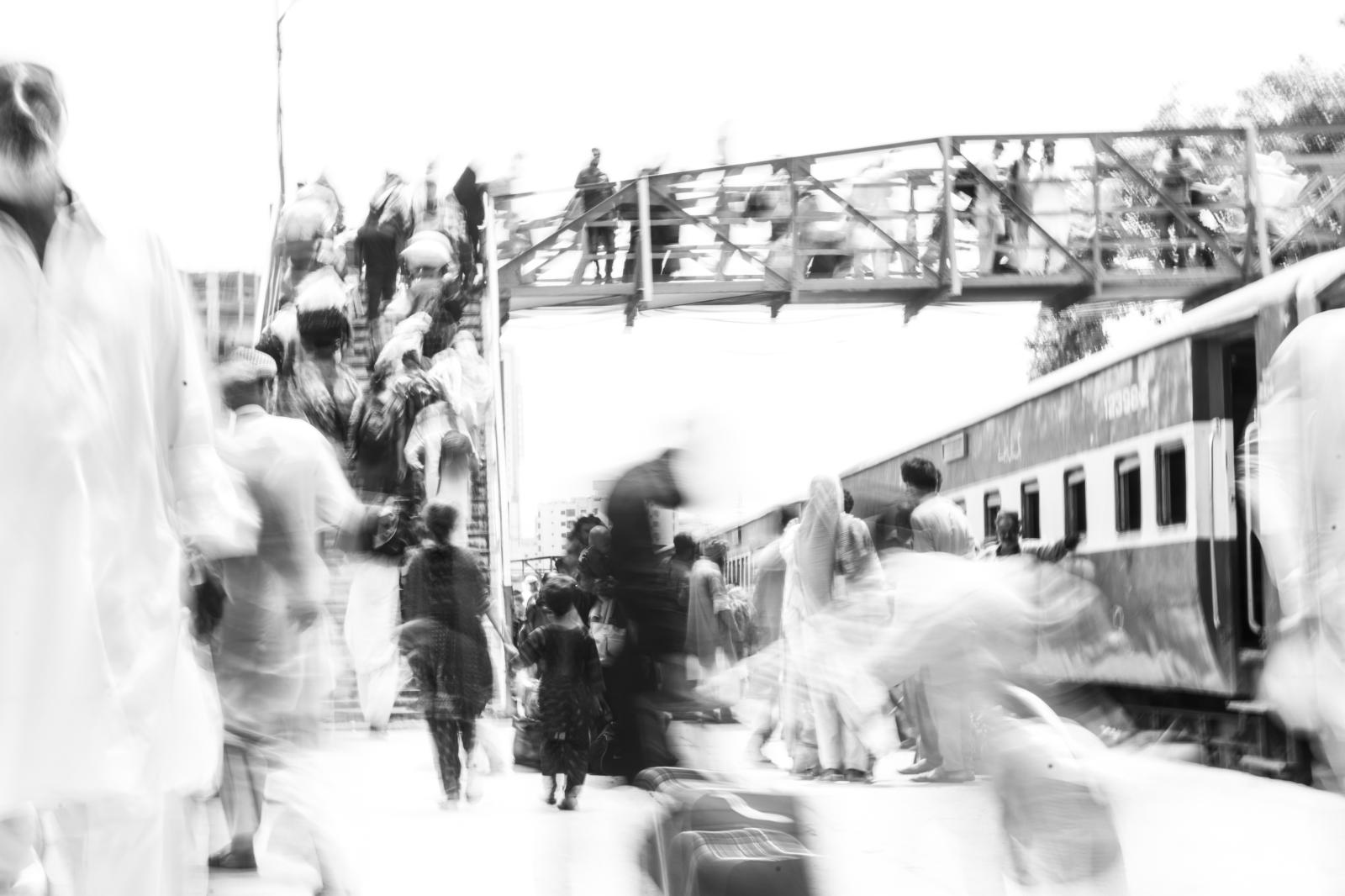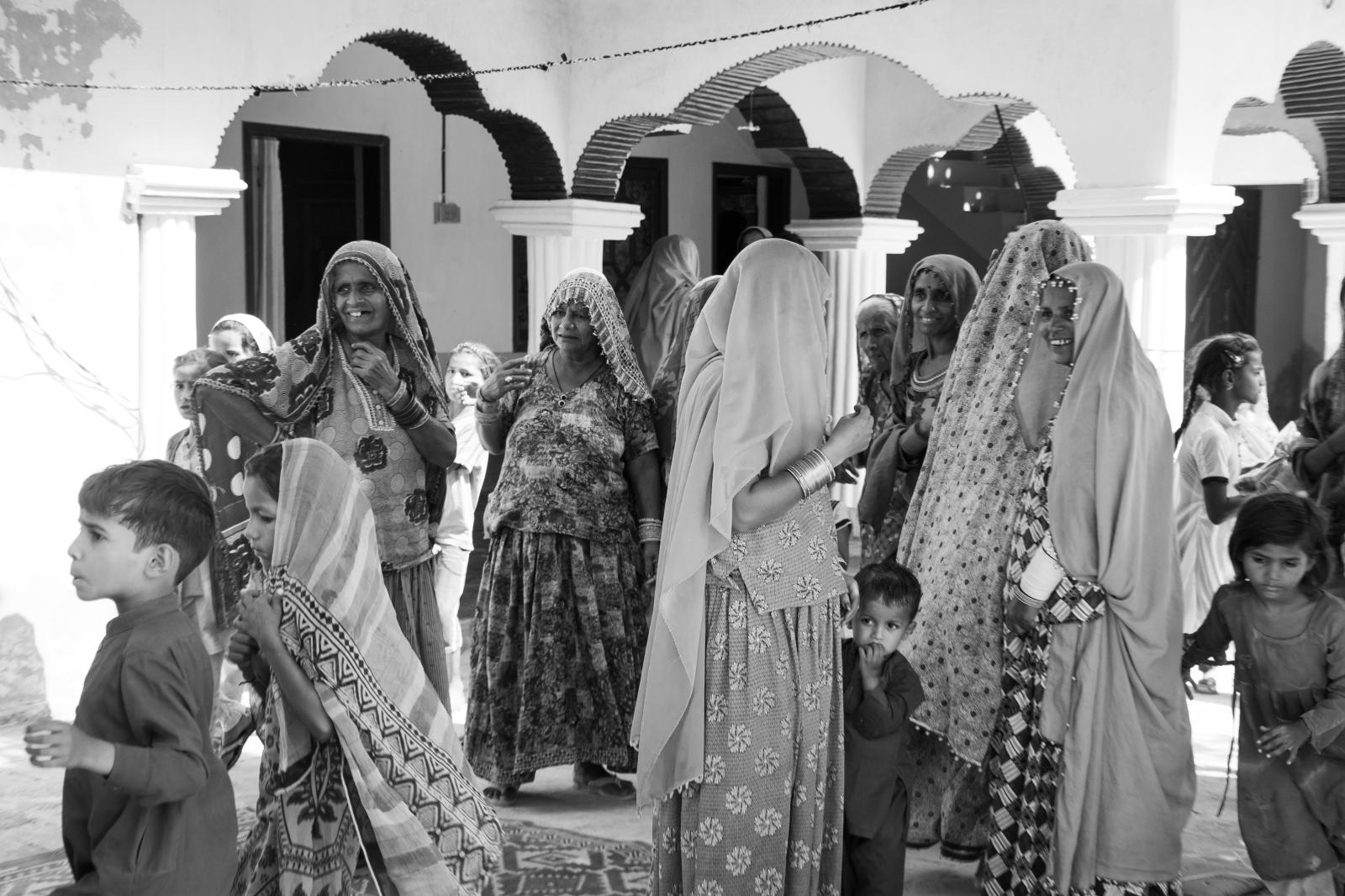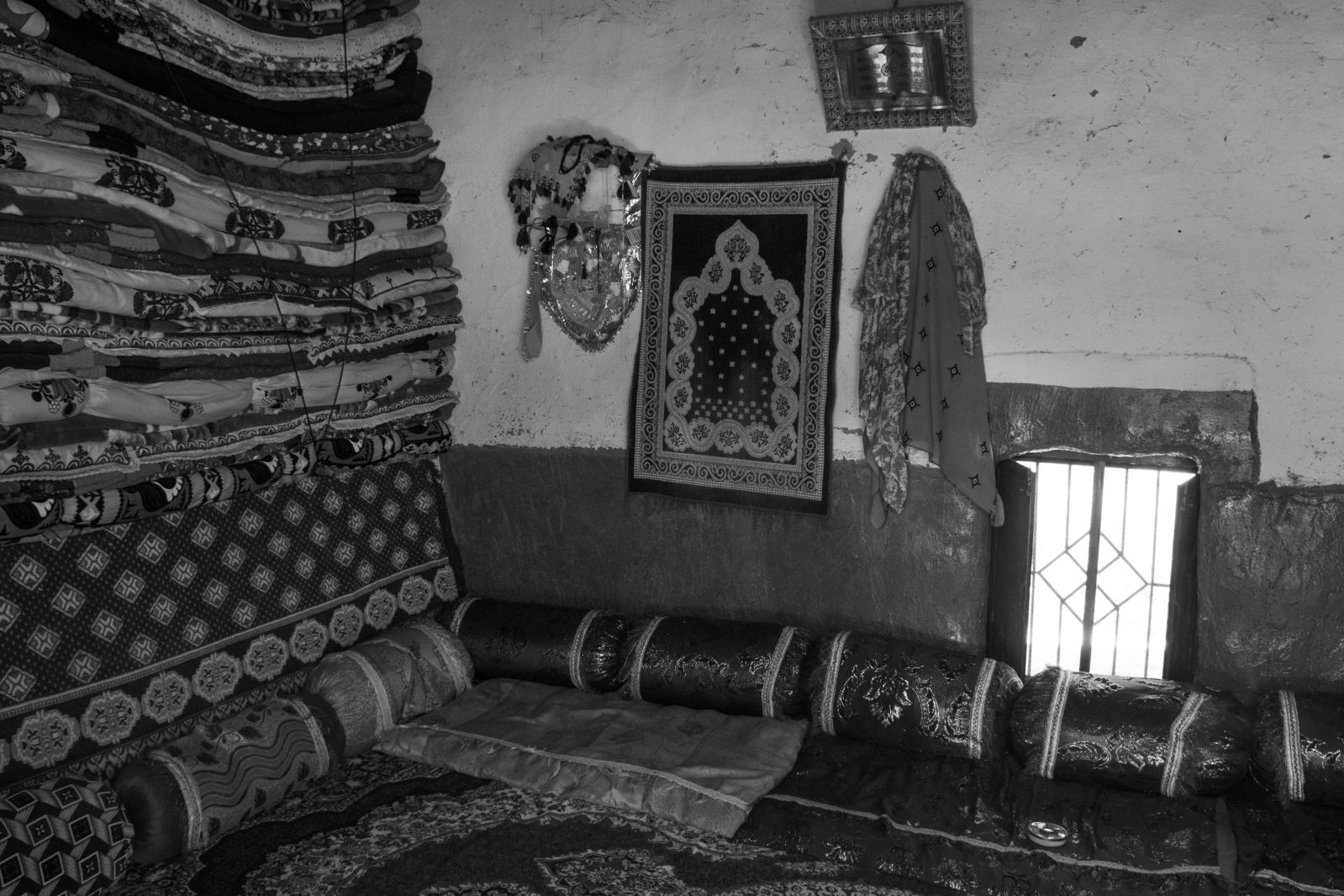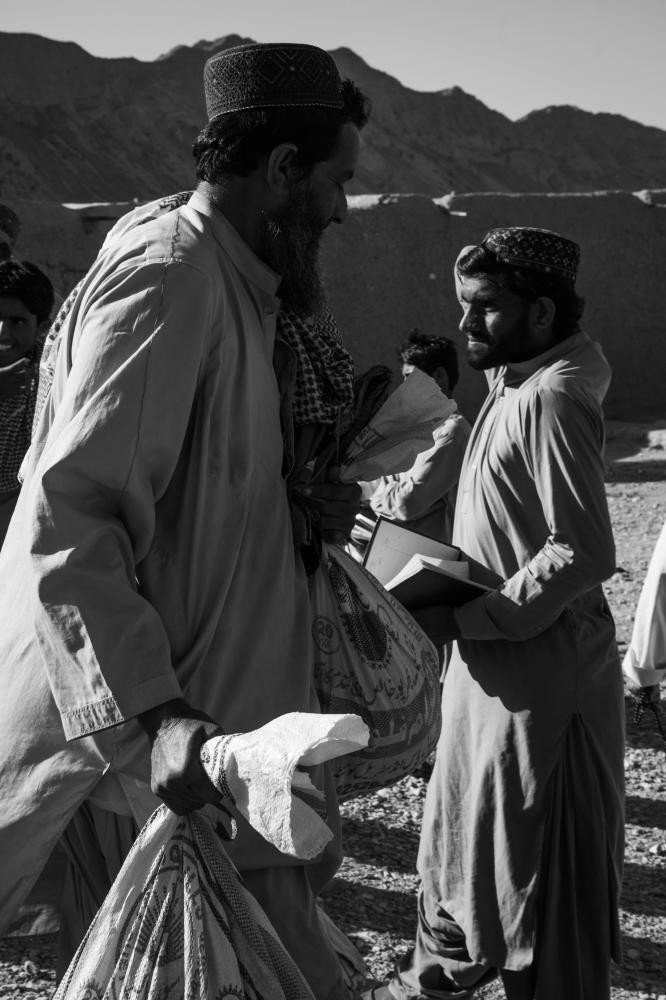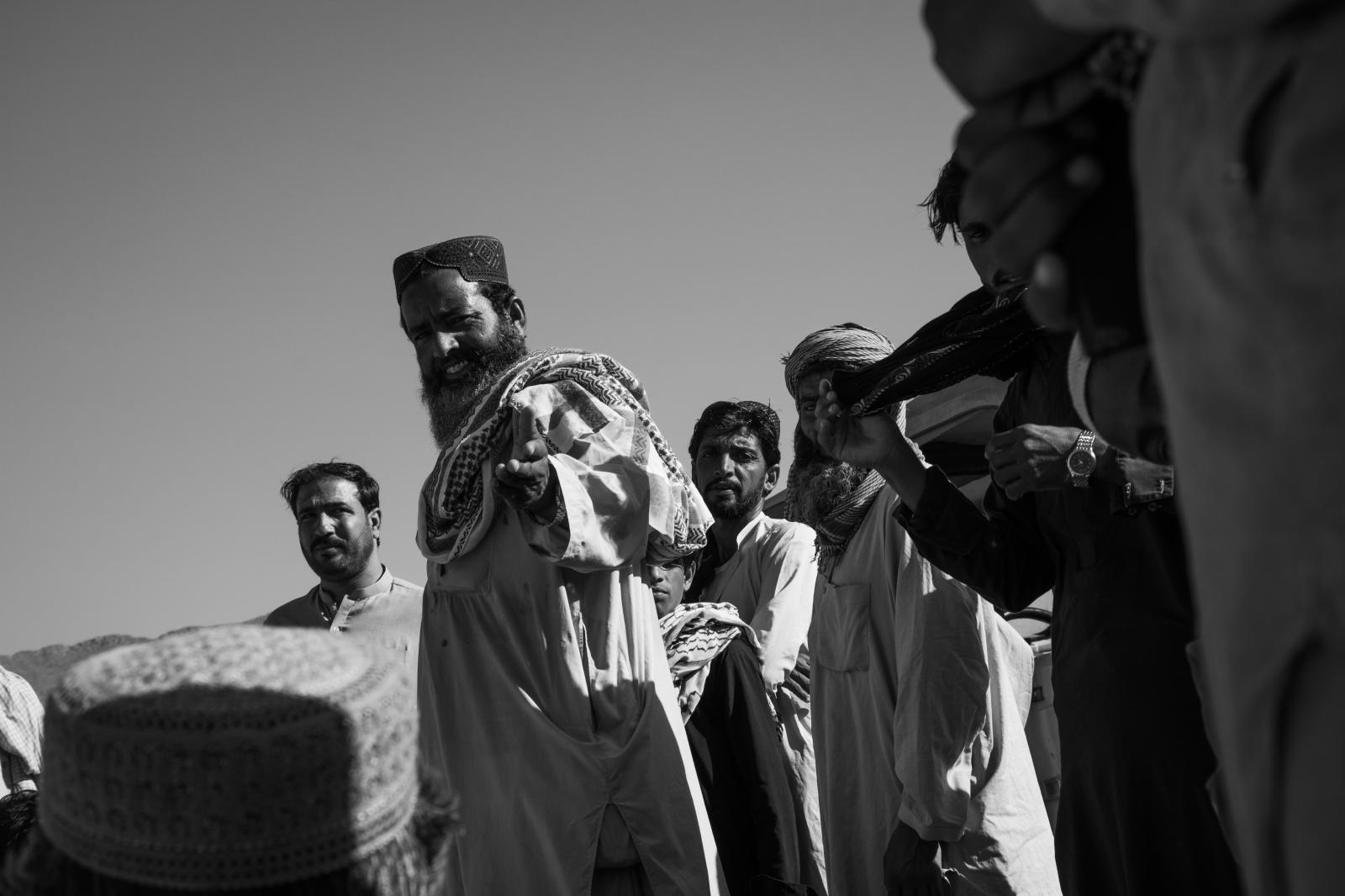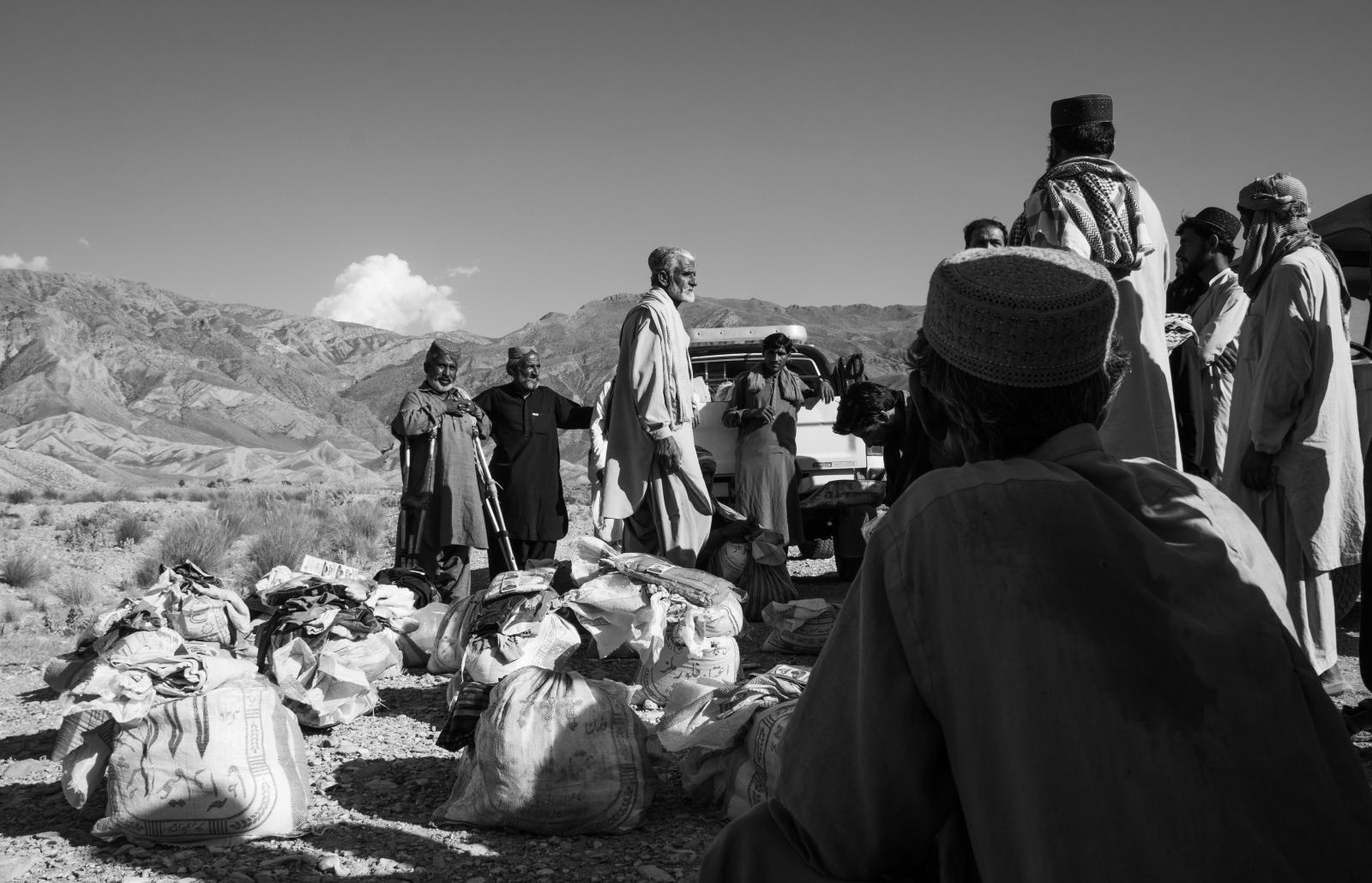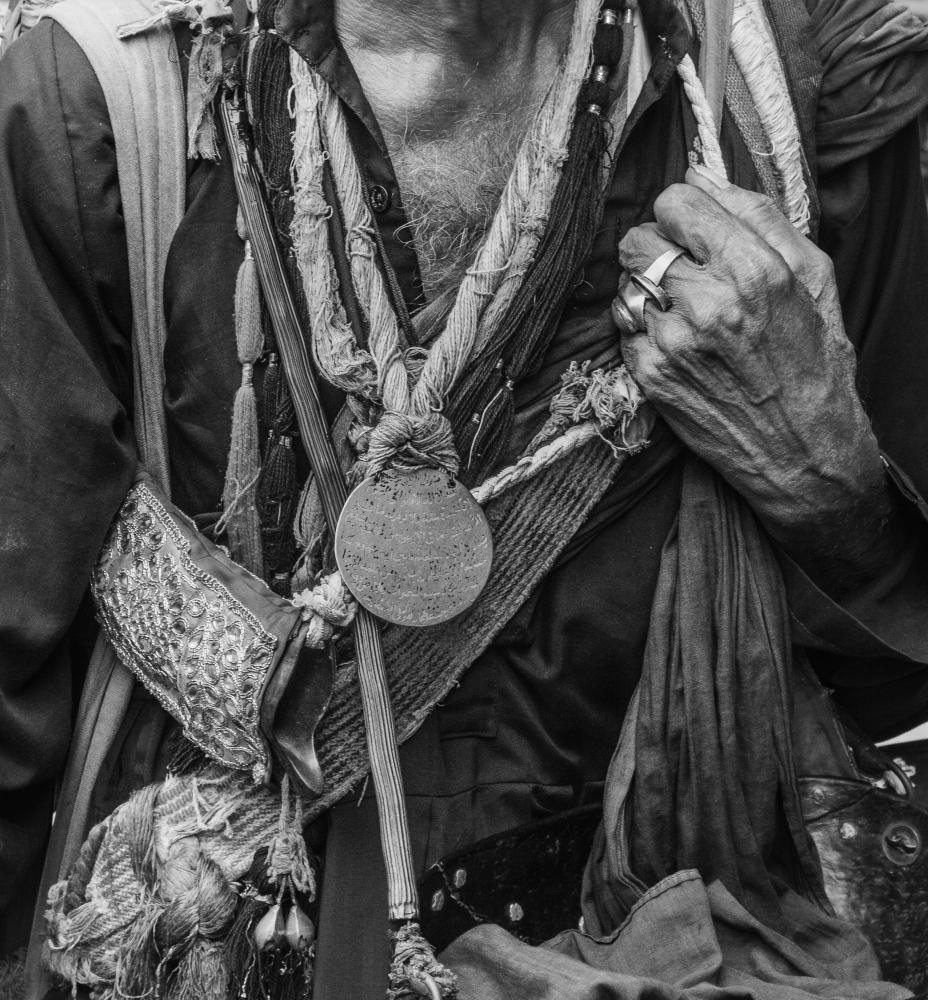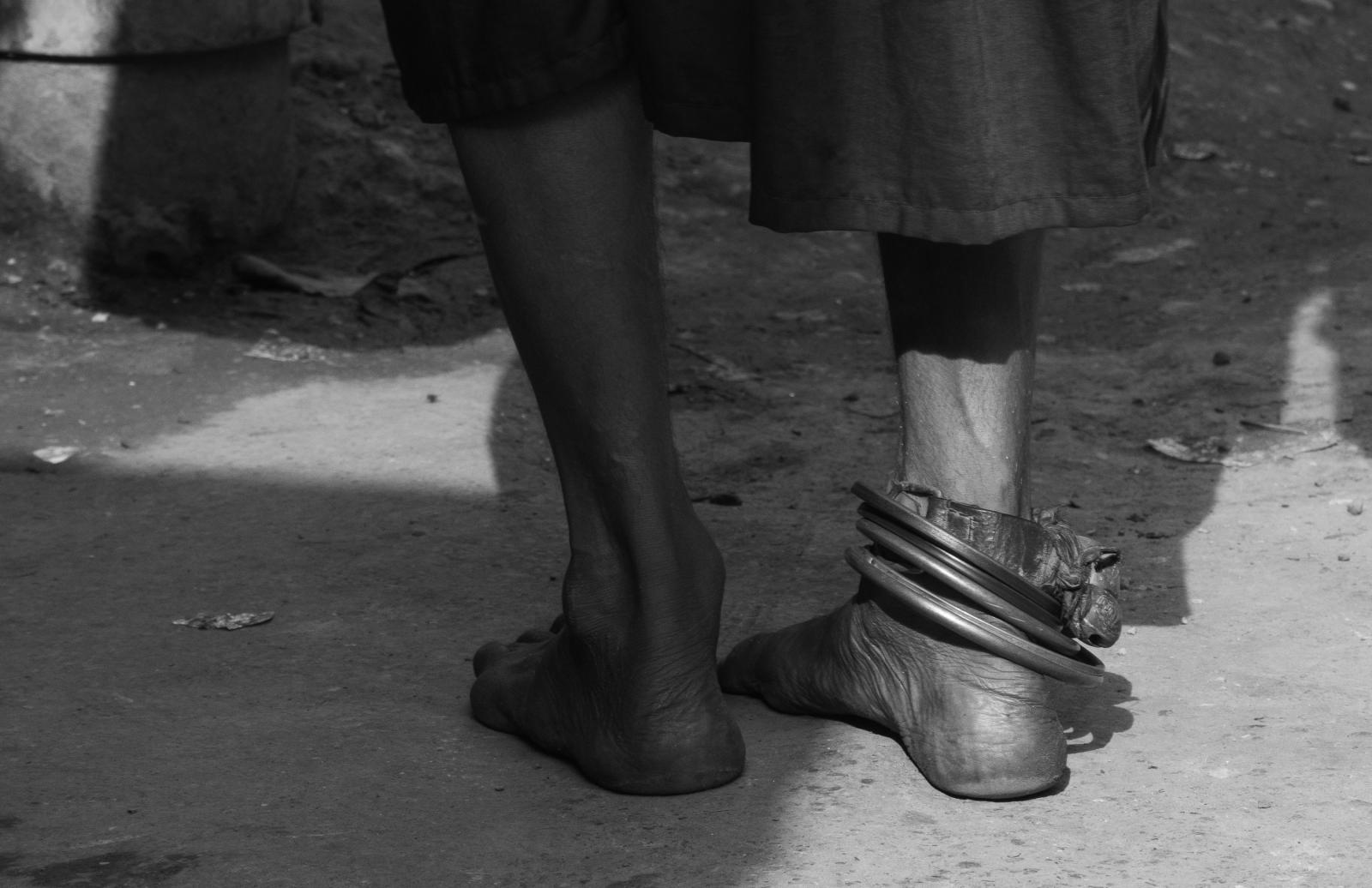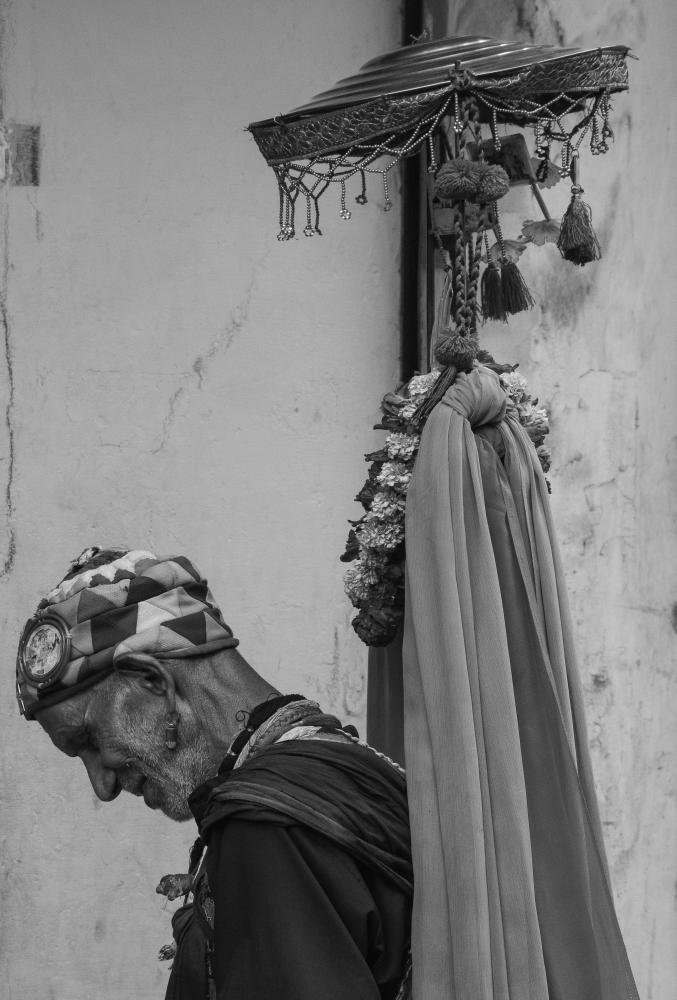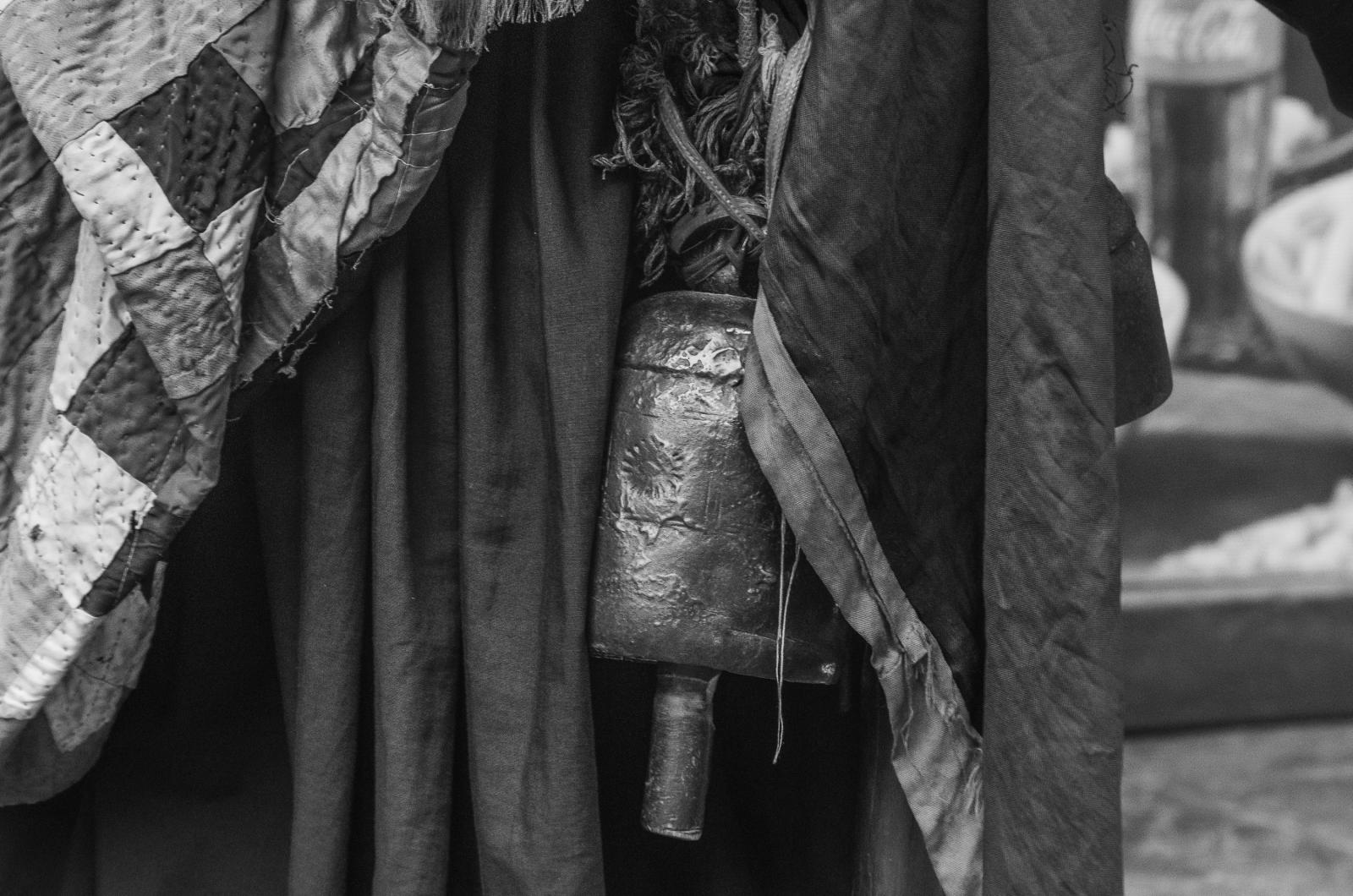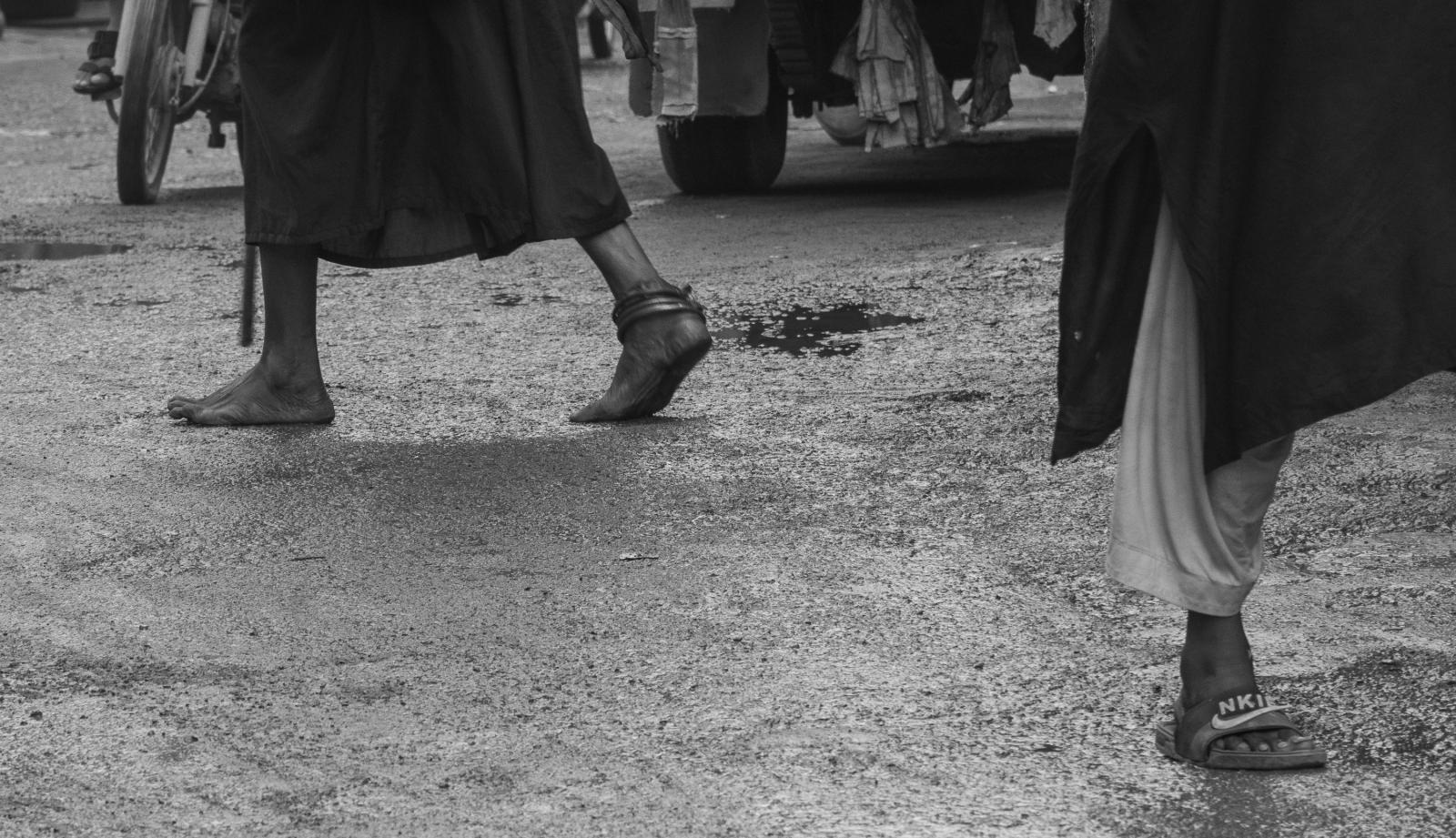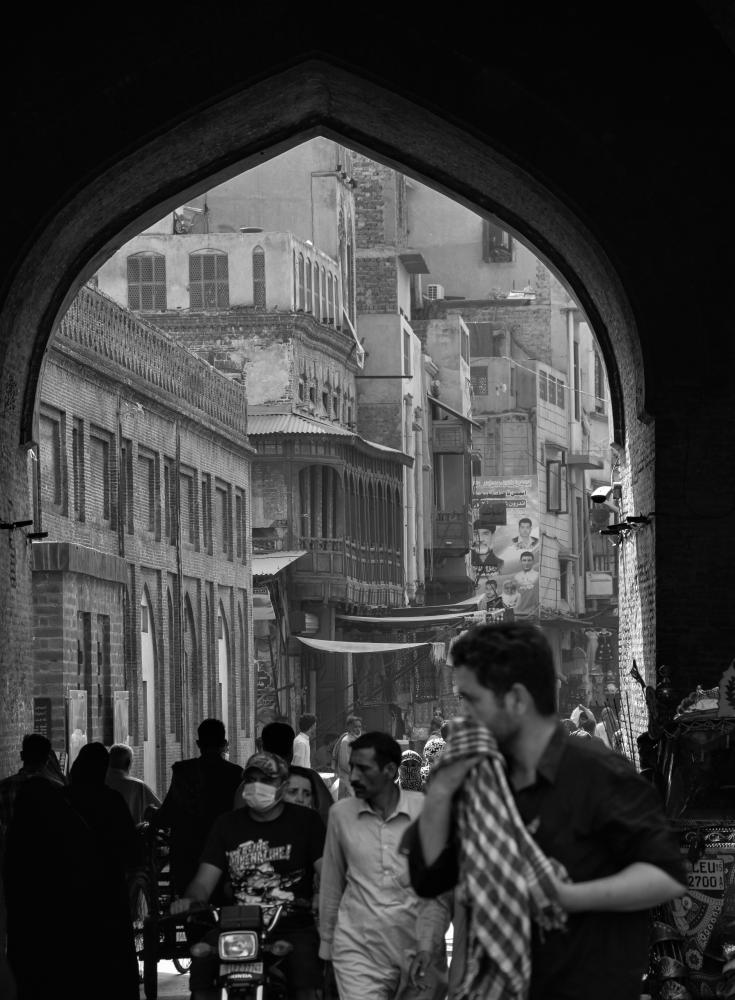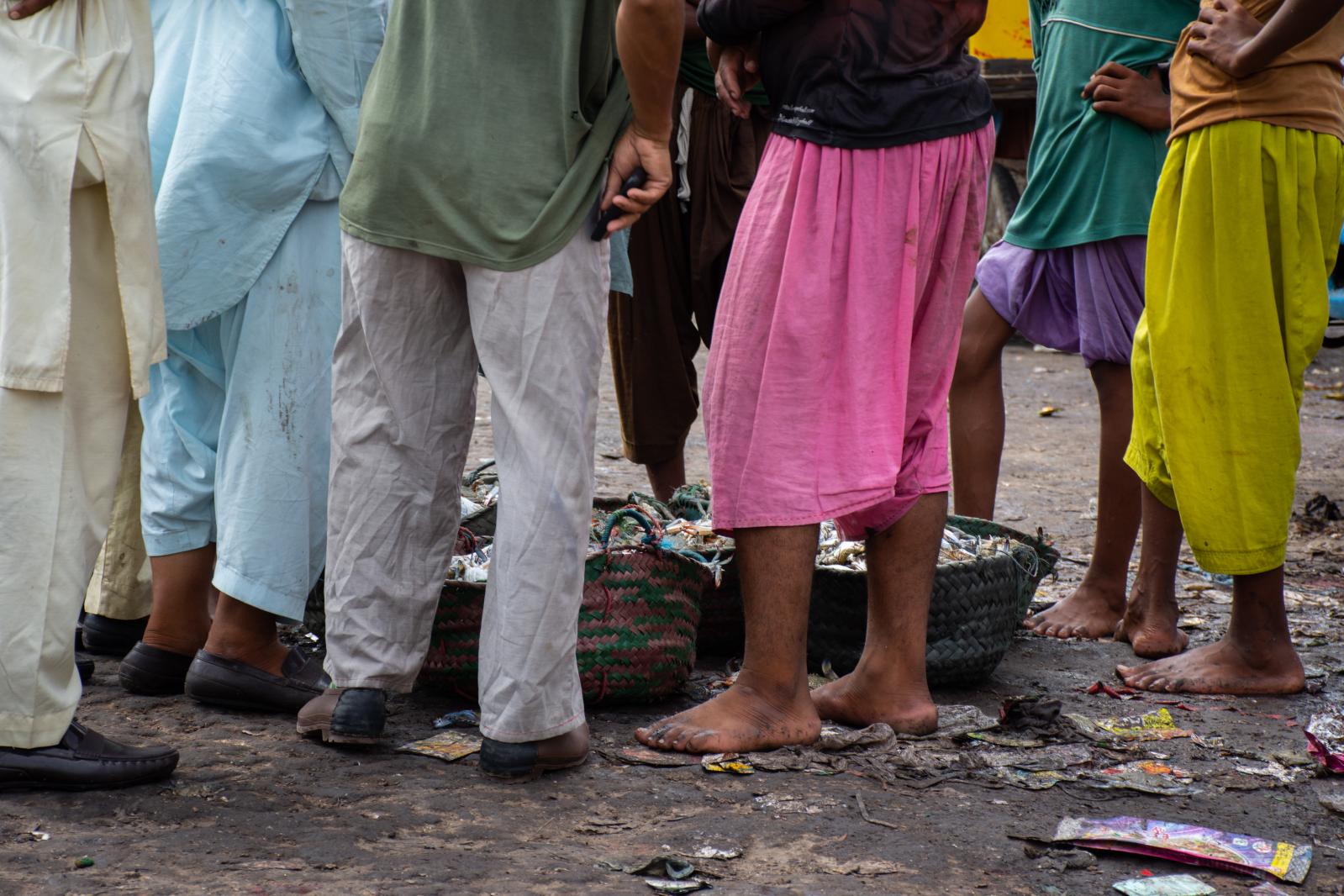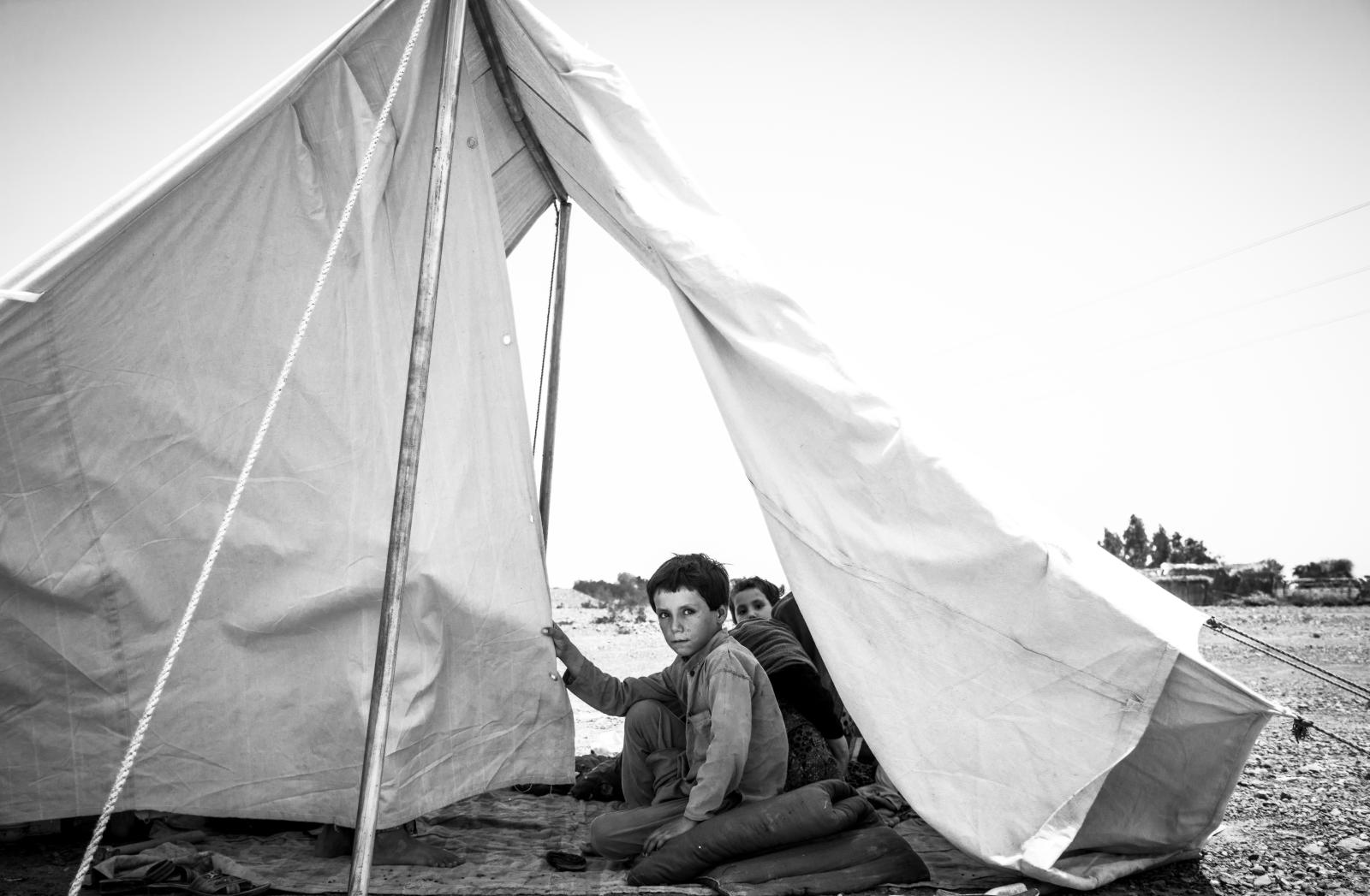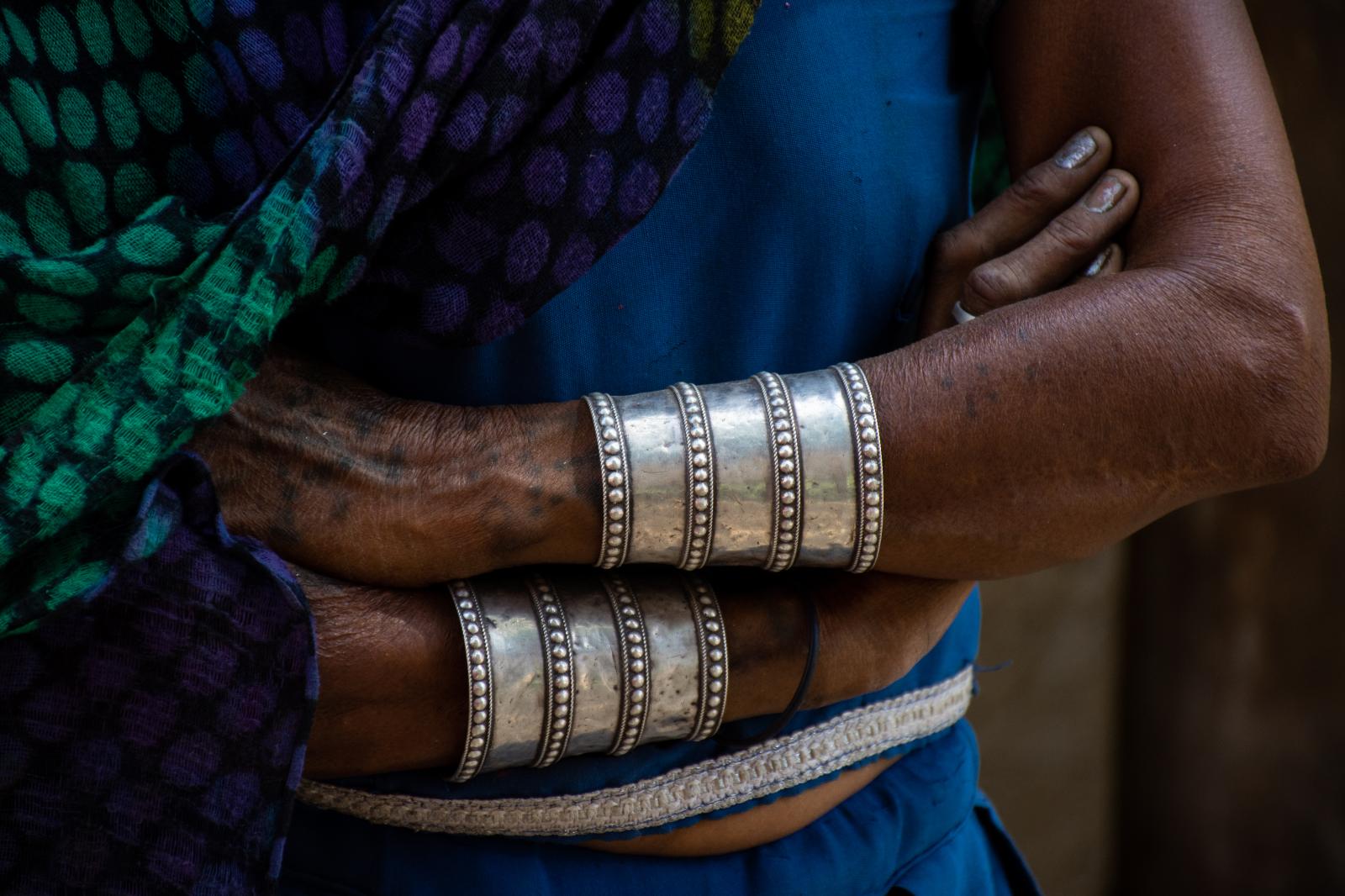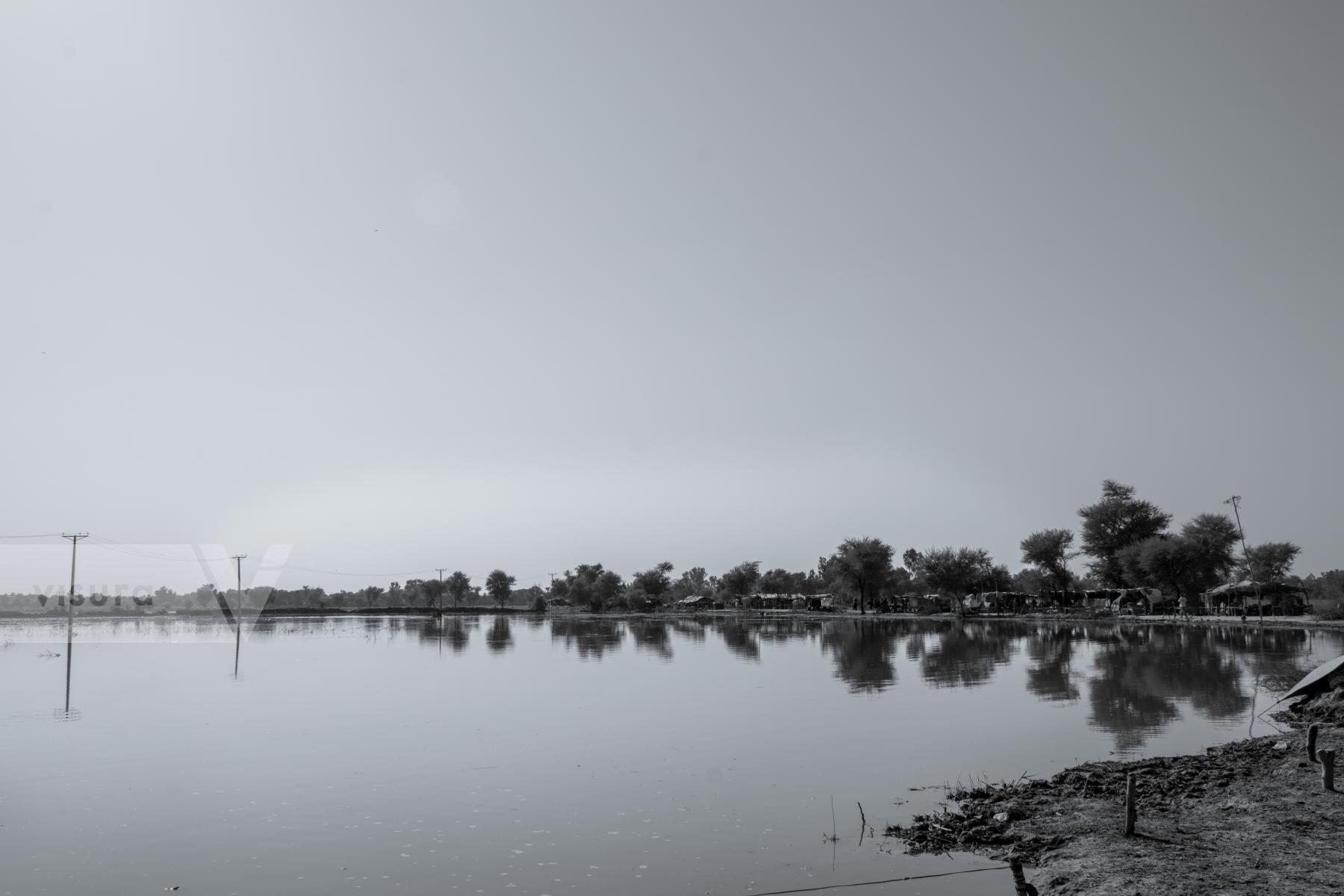
Village Wali Ahmed Brohi has flooded in mid-August heavy rainfall in the Shikarpur district. This narrow strip of land is the only space left for the villagers to live in tents.
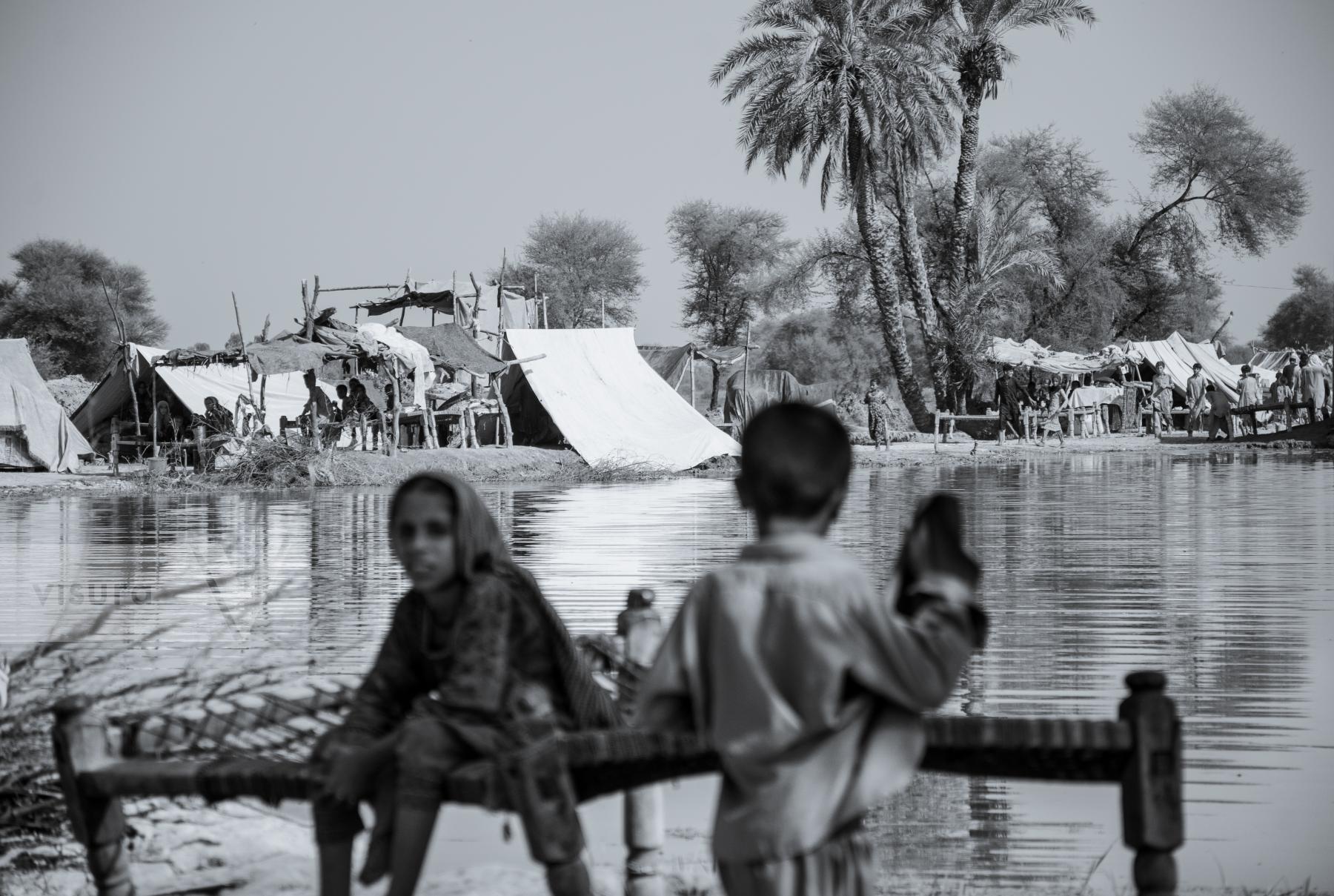
While her siblings play under the scorching sun; this girl was sitting on a cot calmly watching over them. [Village Wali Ahmed Brohi]
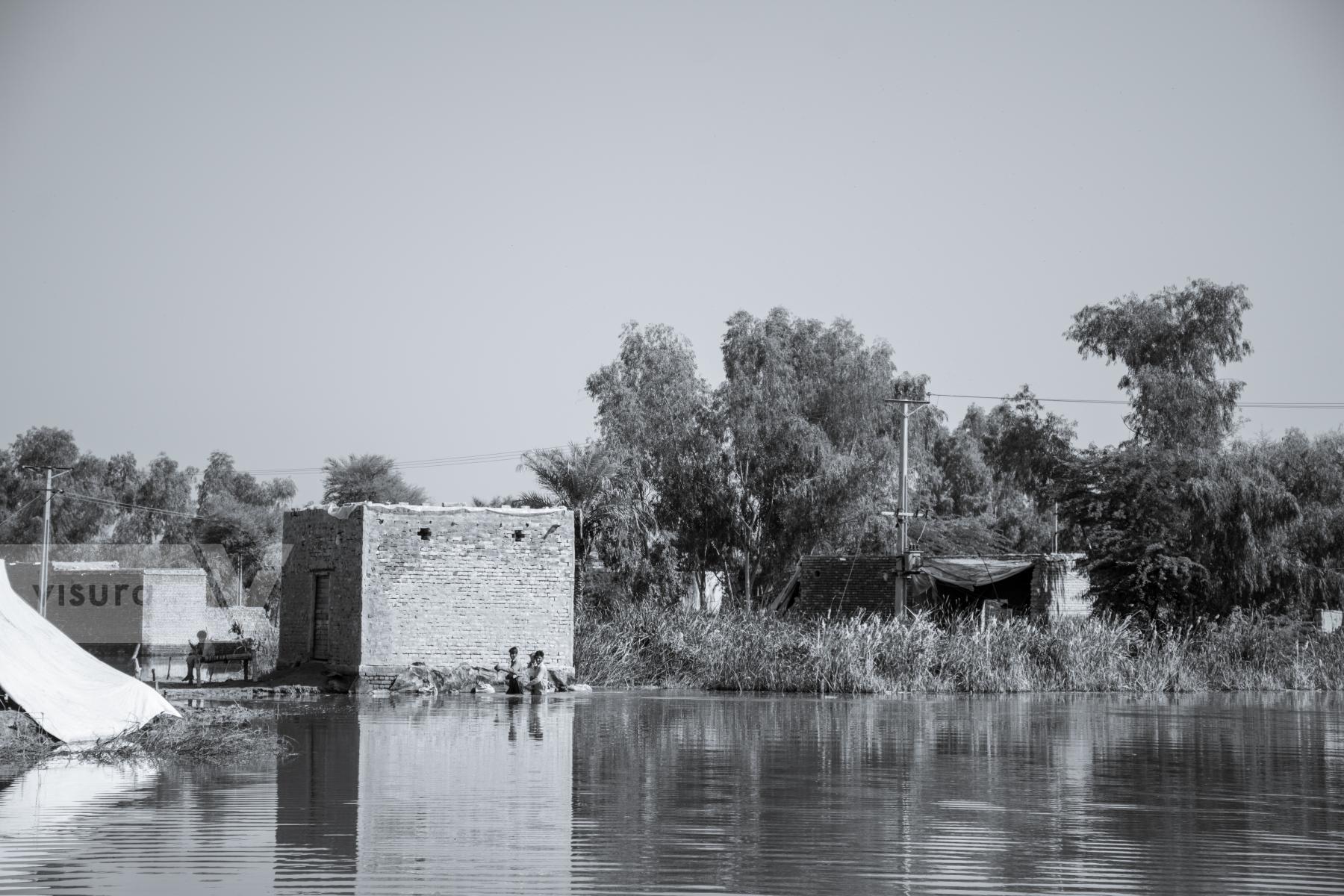
With no place to go, there are those who are still living in these flooded houses. The water is contaminated, a breeding ground for many diseases. [Village Wali Ahmed Brohi]
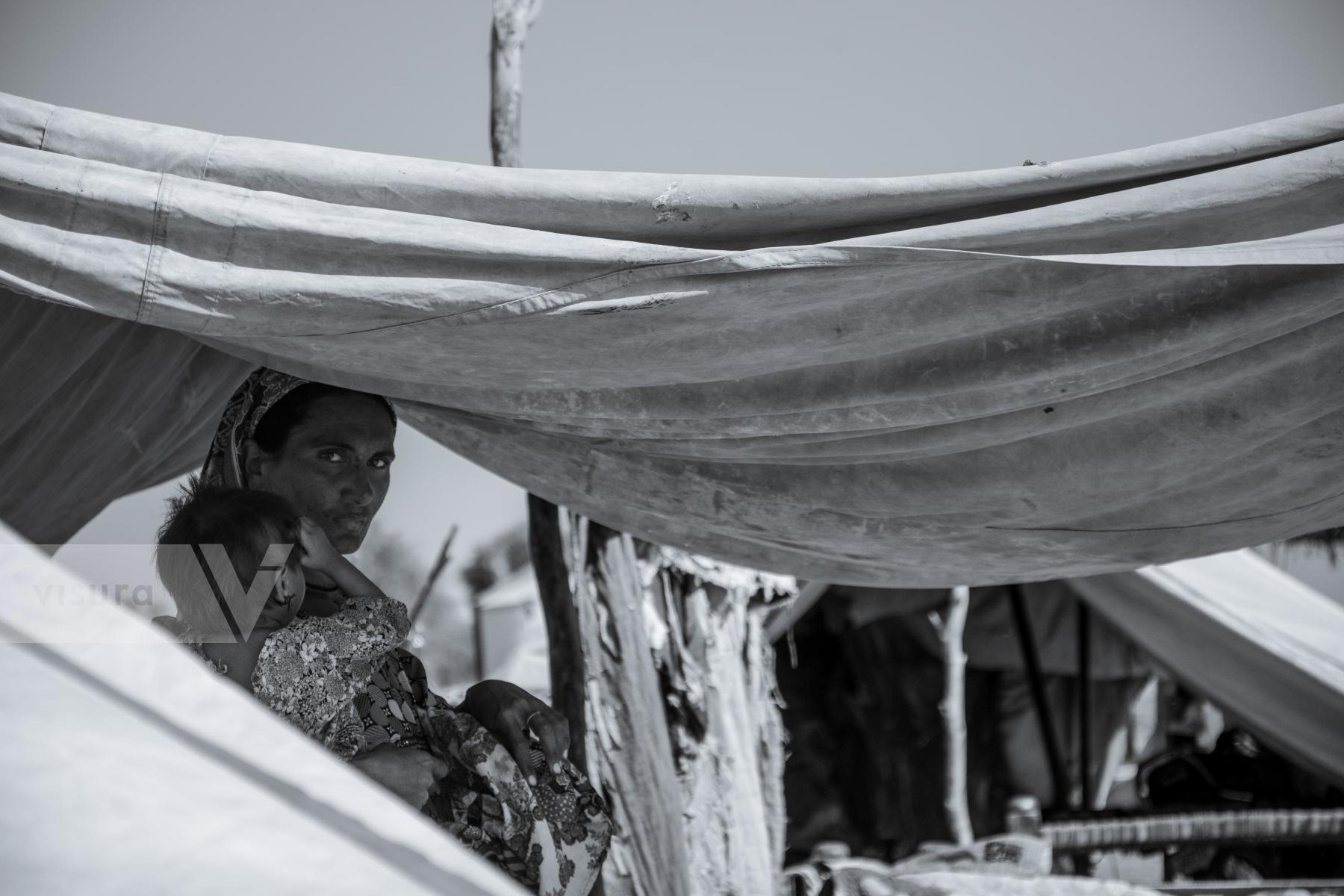
A woman cradling her child inside her makeshift tent house during the midday heat. [Village Wali Ahmed Brohi]
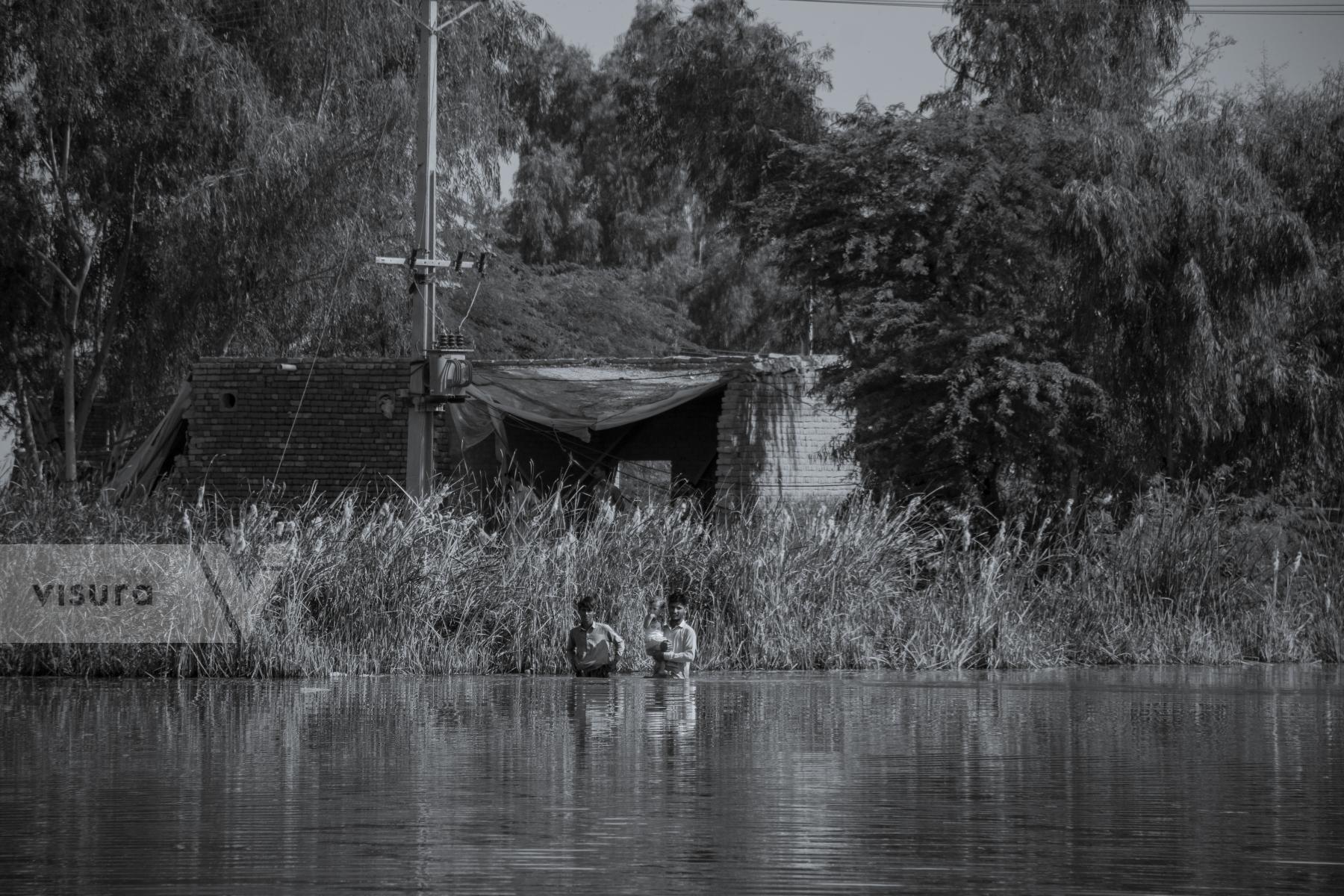
Two boys cross the flooded field while carrying a child in the village Wali Ahmed Brohi.
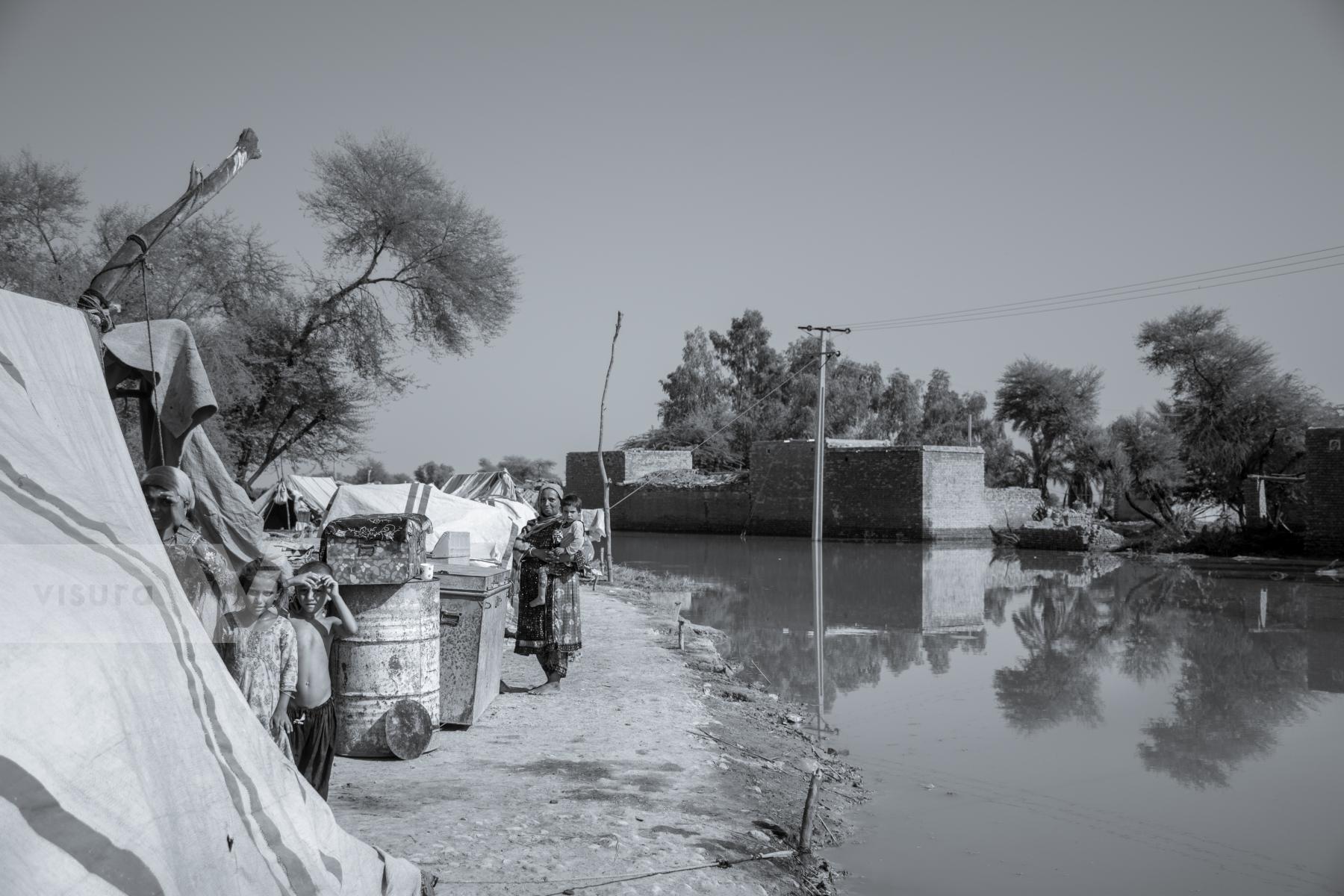
As I kept walking on the strip, I came across families struggling to make ends meet, as most of them are farmers and with the land being flooded, their source of livelihood is gone. [Village Wali Ahmed Brohi]
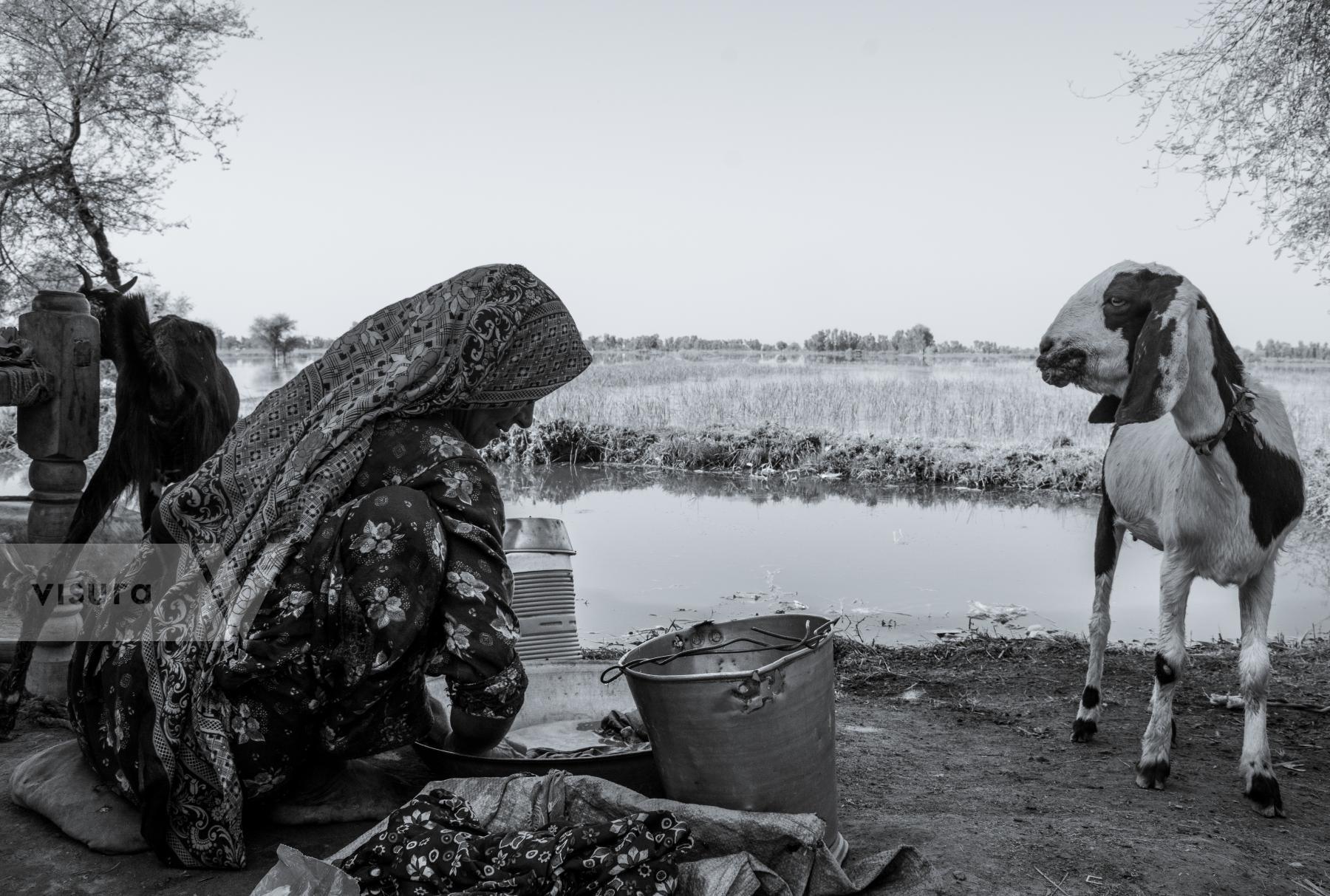
They fetch drinking water from distant handpumps which are still working properly, while for other uses, they have to rely on the contaminated water around them. [Village Wali Ahmed Brohi]
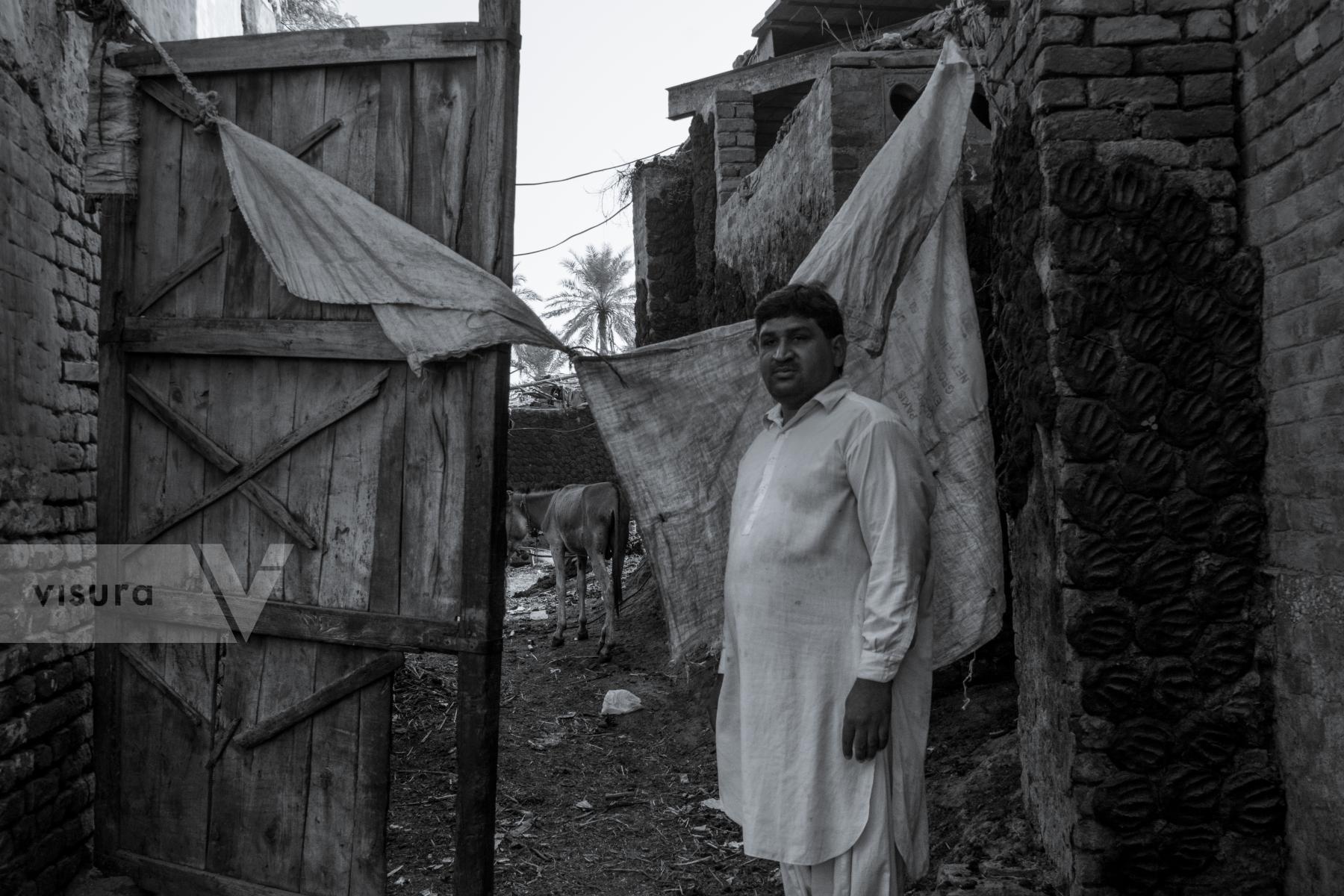
Wali Muhammad, a farmer from Maseti Naper village in Shikarpur district stands outside his damaged home. Current rain and flood have destroyed his farmland as well as his house.
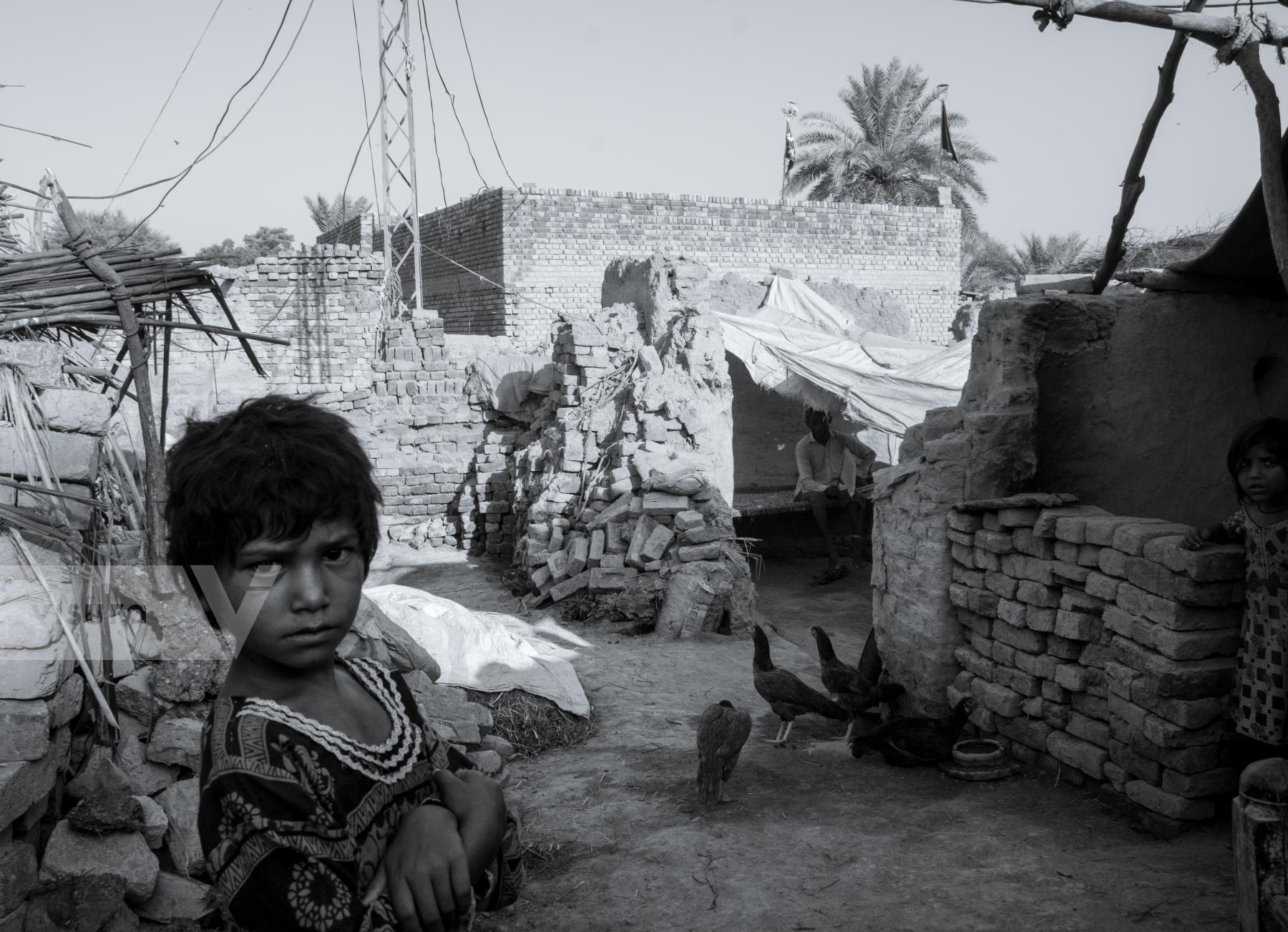
"On 24th August, in the middle of the night around, 2:30 am the roof of my house collapsed due to continuous rain" - Wali Muhammad told me while her daughters were curiously roaming around me.
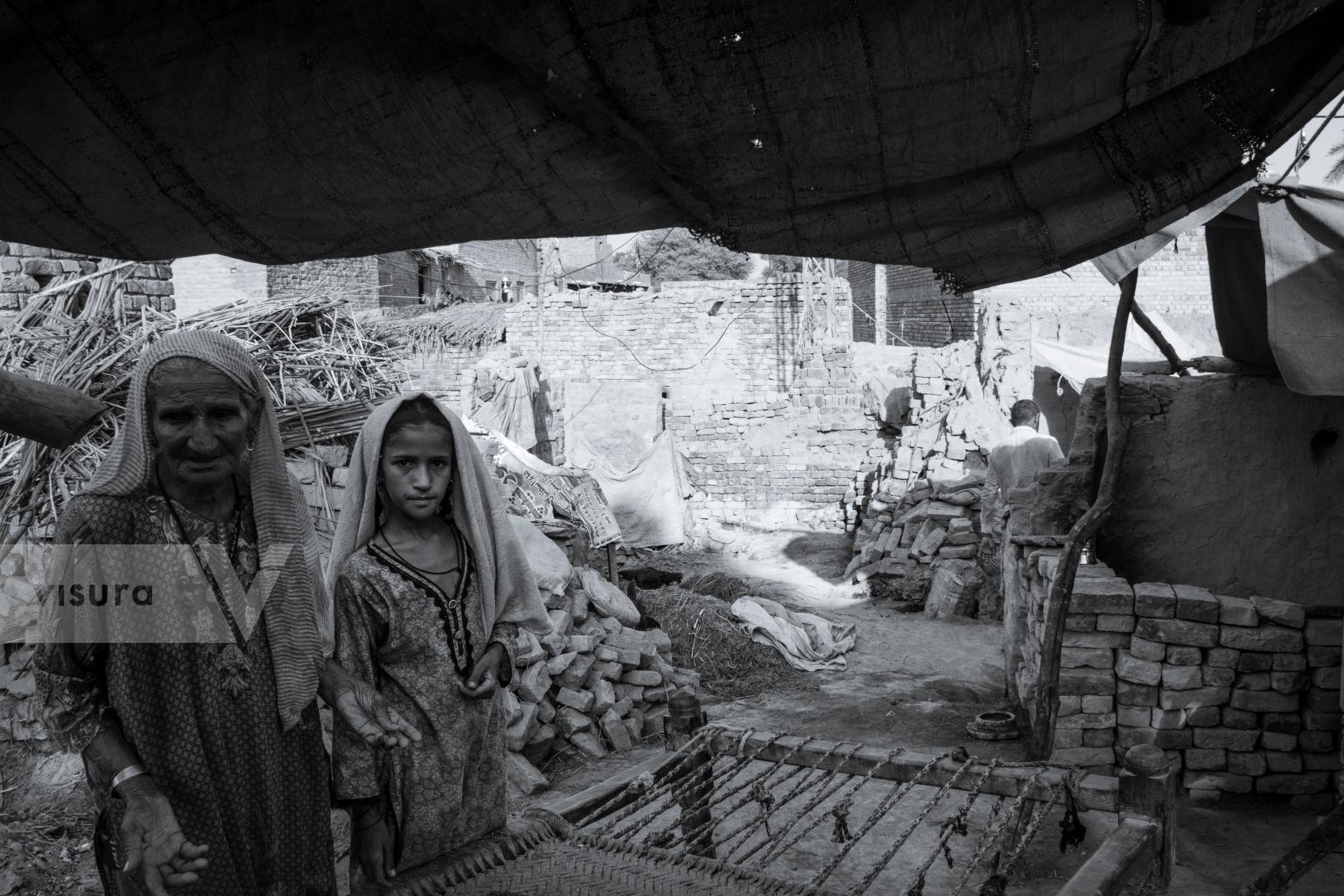
The mother of Wali Muhammad told me about how she used to sit in her veranda on the cot, reciting verses from Quran daily. "Now everything is gone. The roof on my children's heads is gone now, how can I sit calmly now" She shares her sentiments while her eyes were full of tears.
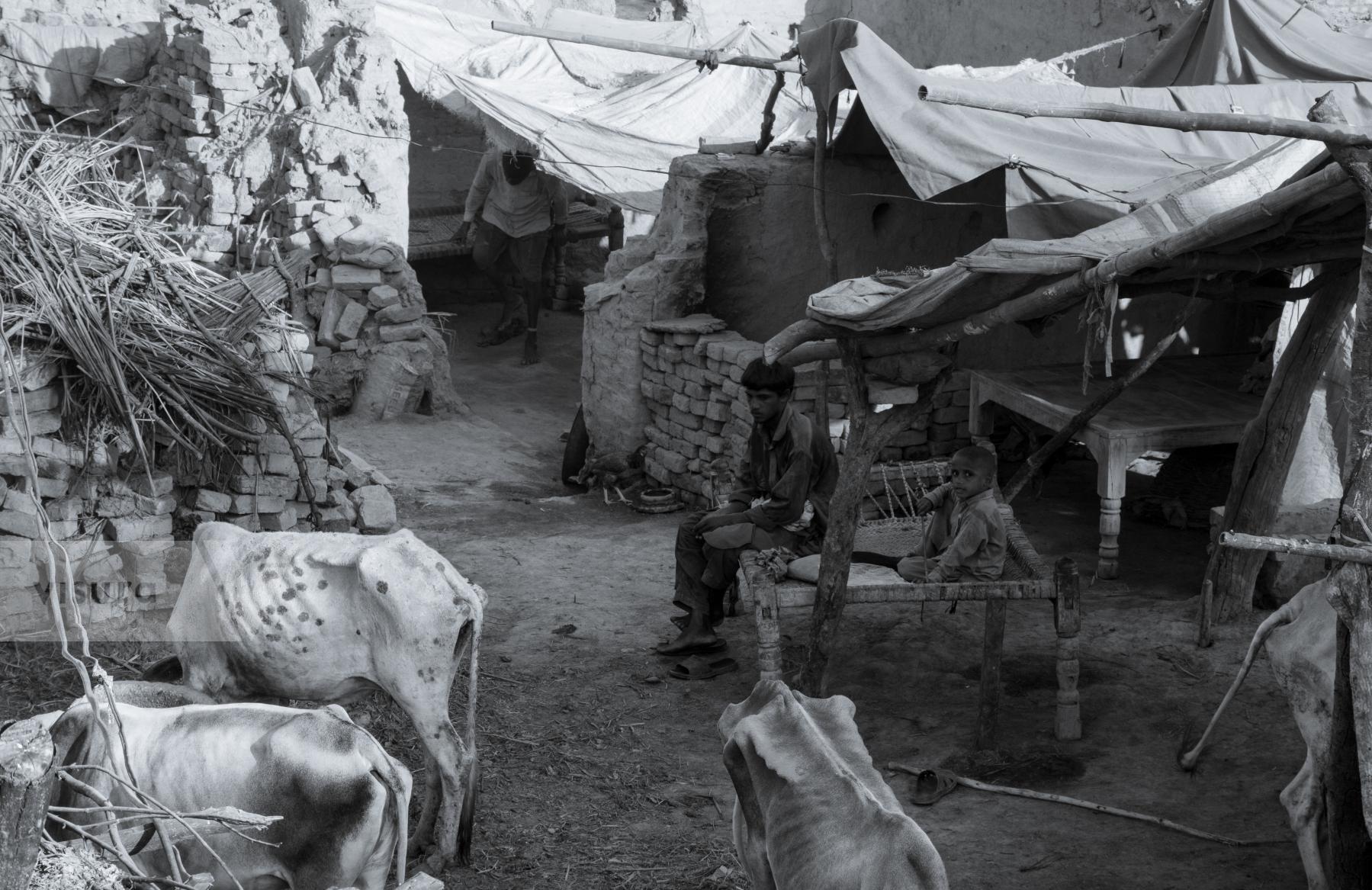
"When the roof collapsed, I managed to save my family but two buffaloes from my livestock died under the rubble. Now, these few remaining cows are all I have now. And they are also in shock and not in good health." says Wali Muhammad while overlooking his shattered house from a distance.
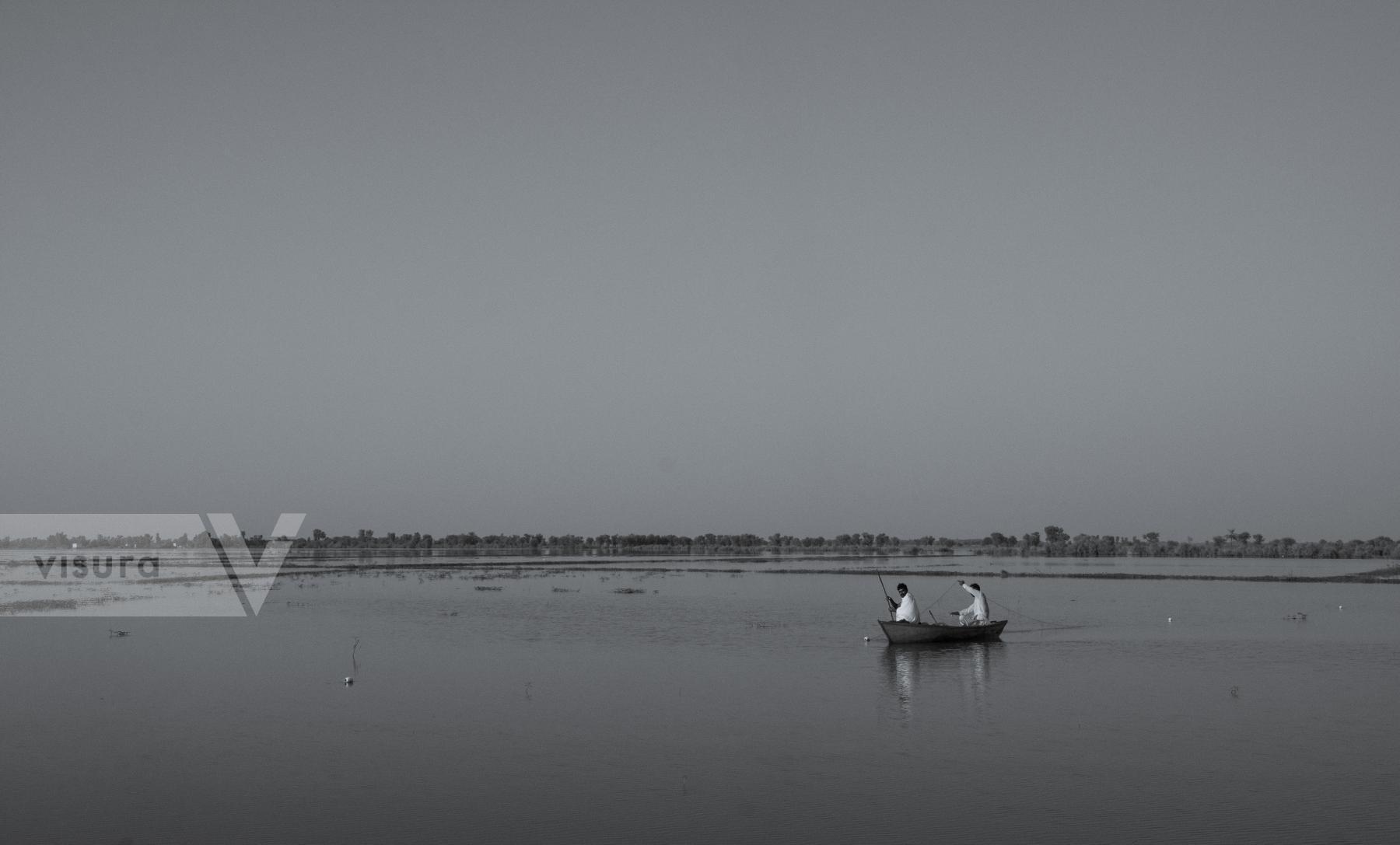
In Muhammad Hassan Jatoi village, two fish farmers are catching fish with a net. During heavy rain, their fish farm overflowed, and all the fish crossed into the contaminated waters on flooded rice fields adjacent to their farms. These water-covered fields are now also home to poisonous snakes.
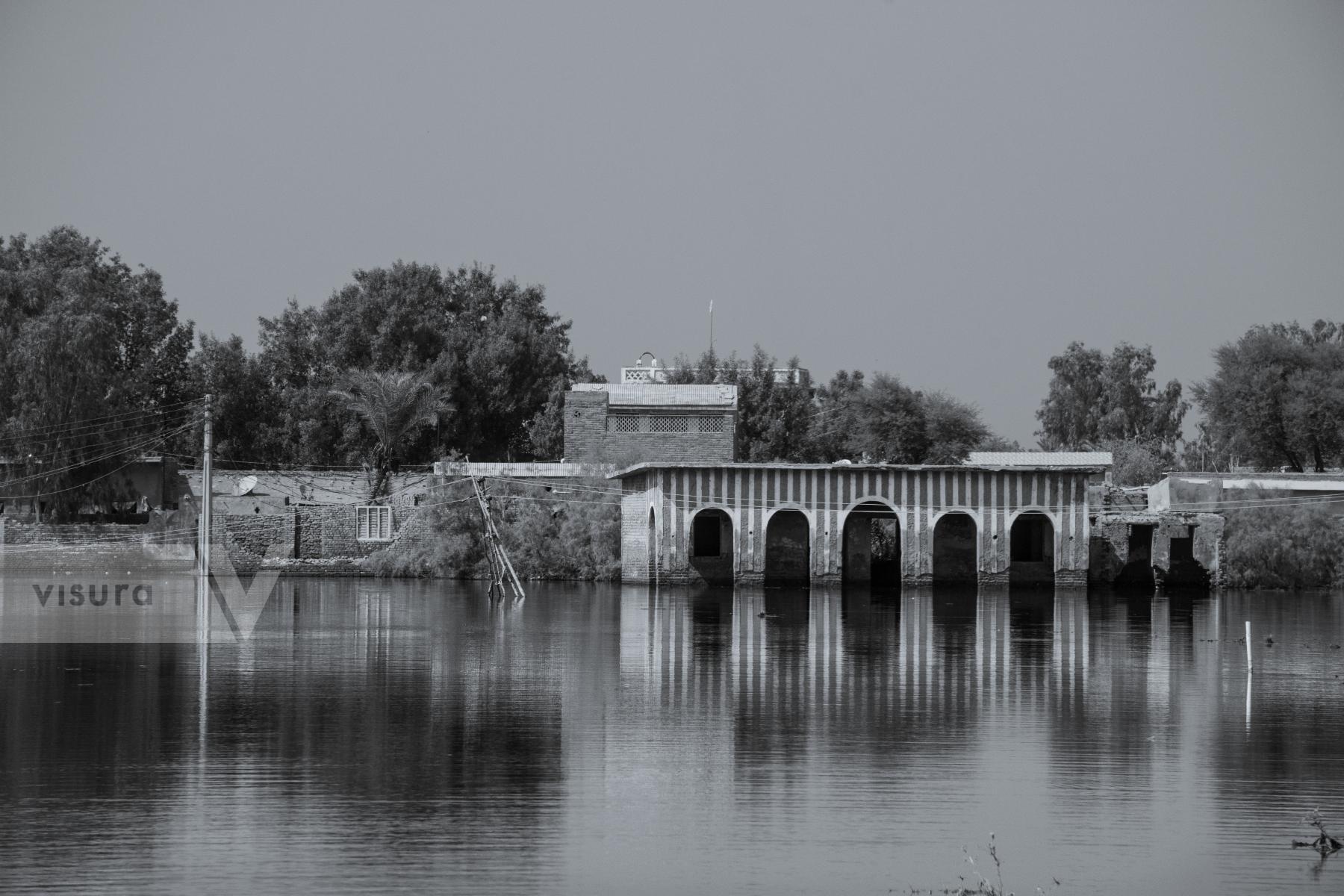
Village Jaggan Khan- Shikarpur District. After spending days in the nearby villages, I decided to go and spend a day in the distant village of Jaggan Khan, named after the grandfather of current lord Sardar Muhammad Jaggan Khan Bhayo. The youngest lord in the district, who succeeded his father Sardar Wahid Baksh Khan Bhayo after his death. This village was one of the most affected villages back in the 2010 floods in the district. The people were still coping with previous flood consequences, as 2022's non-stop rains swept away their lives yet again.
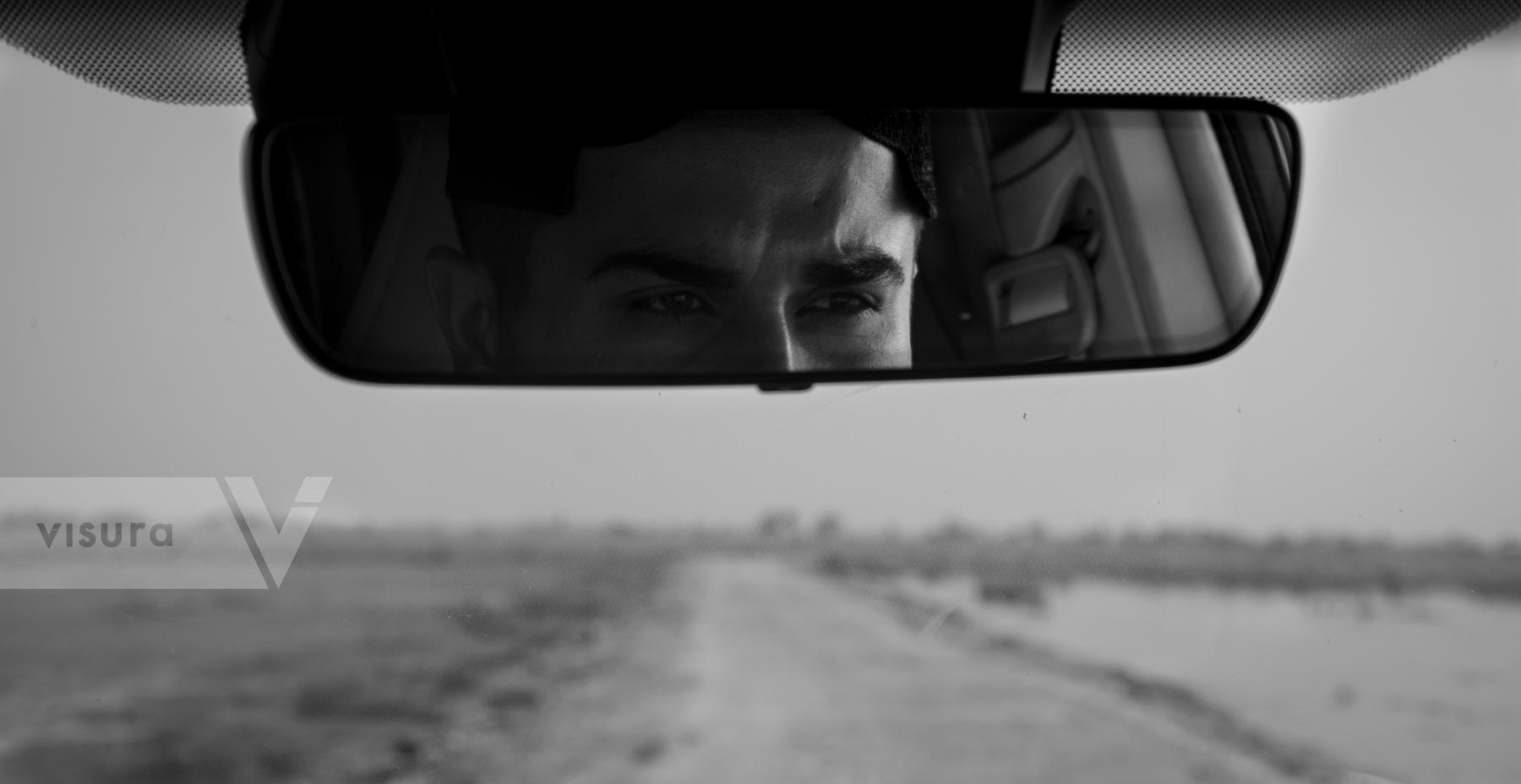
"I am concerned about the standing water in the fields and inside the village but there is little we can do about this. The land is not accepting water anymore as the underground water level is already high. If we decide to make cuts in the fields, diverting water to another side, it will make adjacent villages flood more. To save one, the other has to drown, which is not wise. Our crops are gone already, now all we can do is wait and hope that in the coming months after the water dissipates, these fields will be ready to farm again" Sardar Jaggan Khan Bhayo.
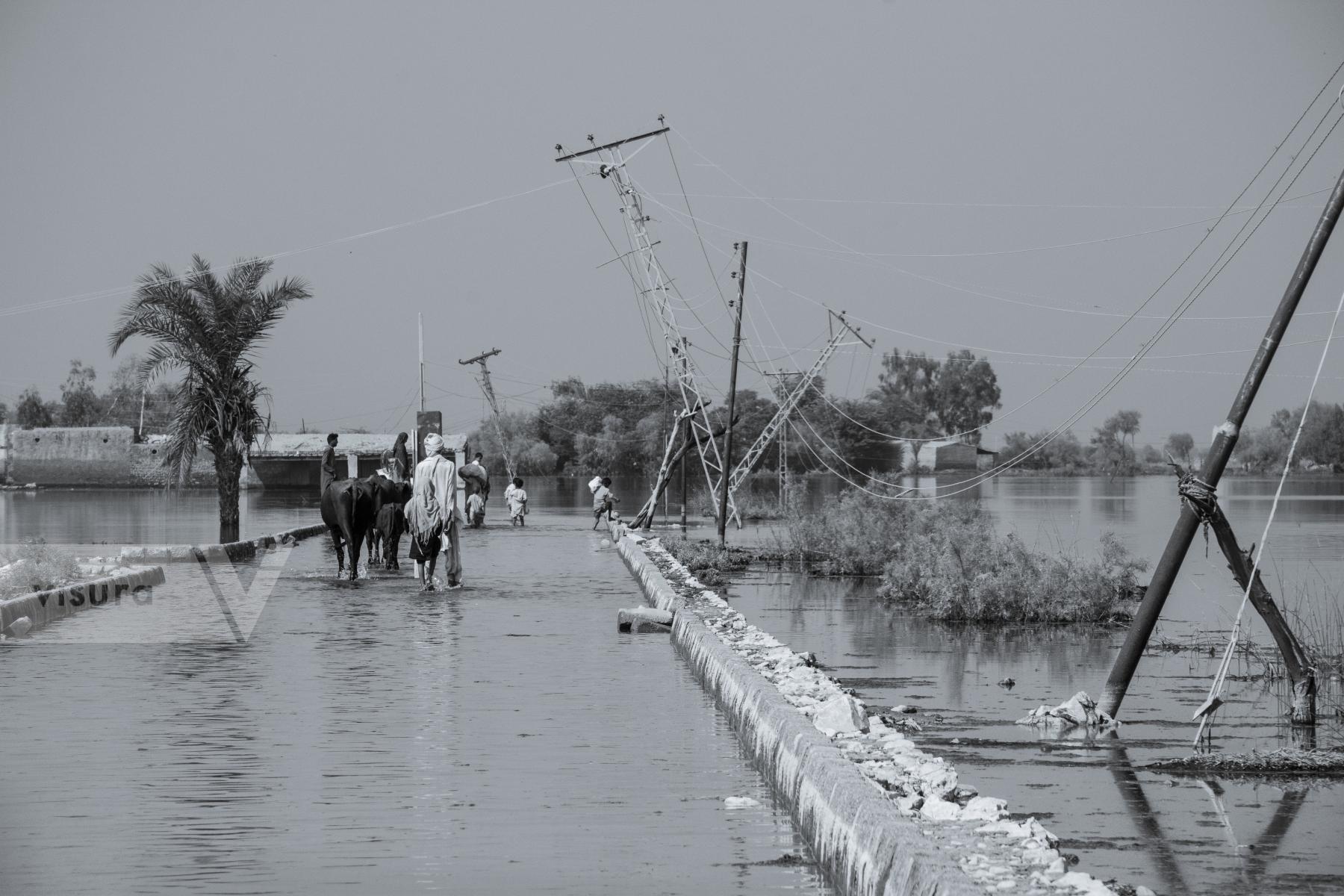
Villagers walk on the flooded streets along with their children and animals. As many people were displaced and found living in tents now, there are many others who refuse to leave their homes and belongings. [Village Jaggan Khan]
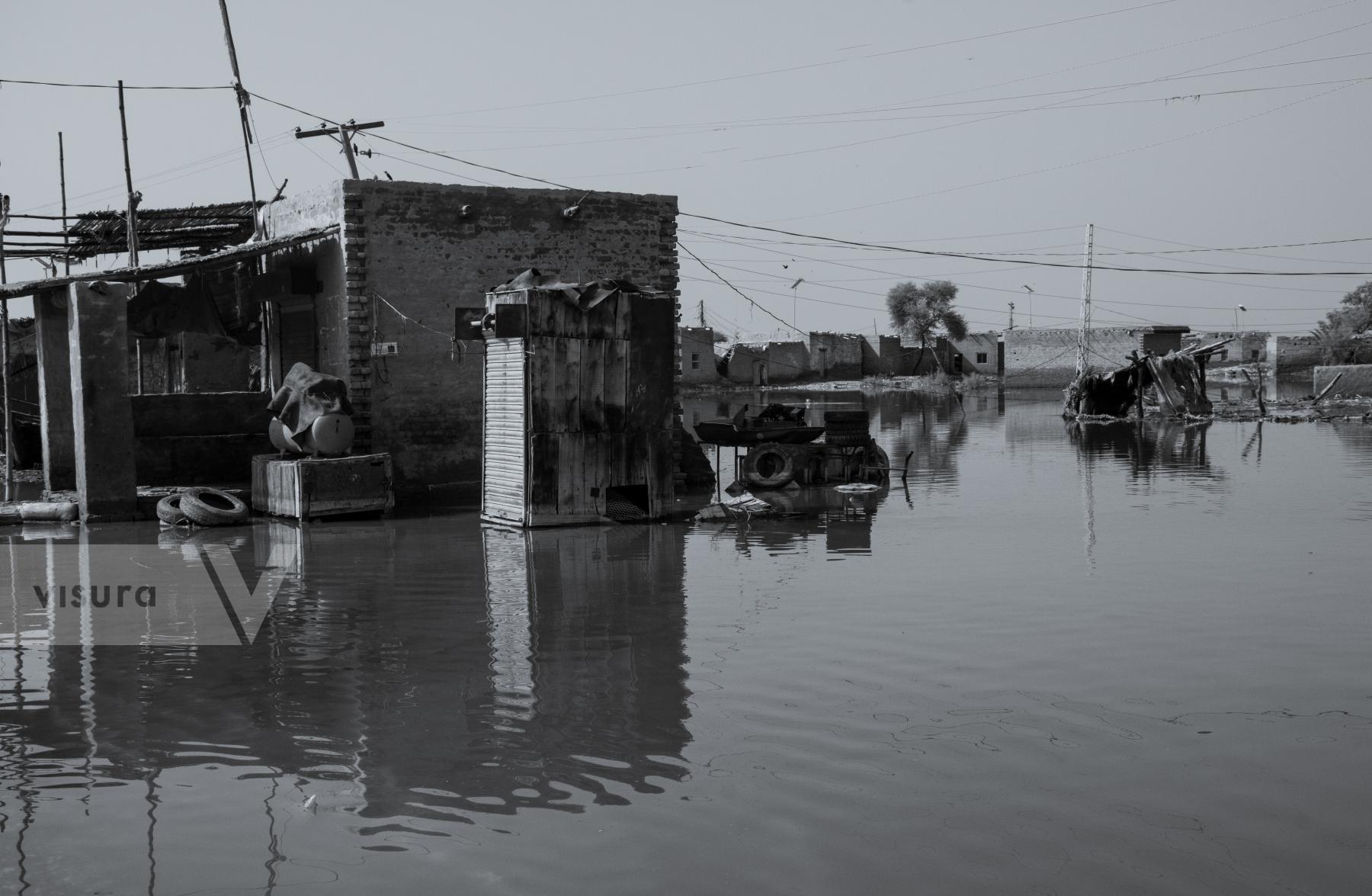
From June through August, summer monsoon rains dumped 190 percent more rainfall than normal, with the province of Sindh receiving over 410 percent above average. That’s nearly six times more than the 30-year average rainfall for this region. [Village Jaggan Khan]
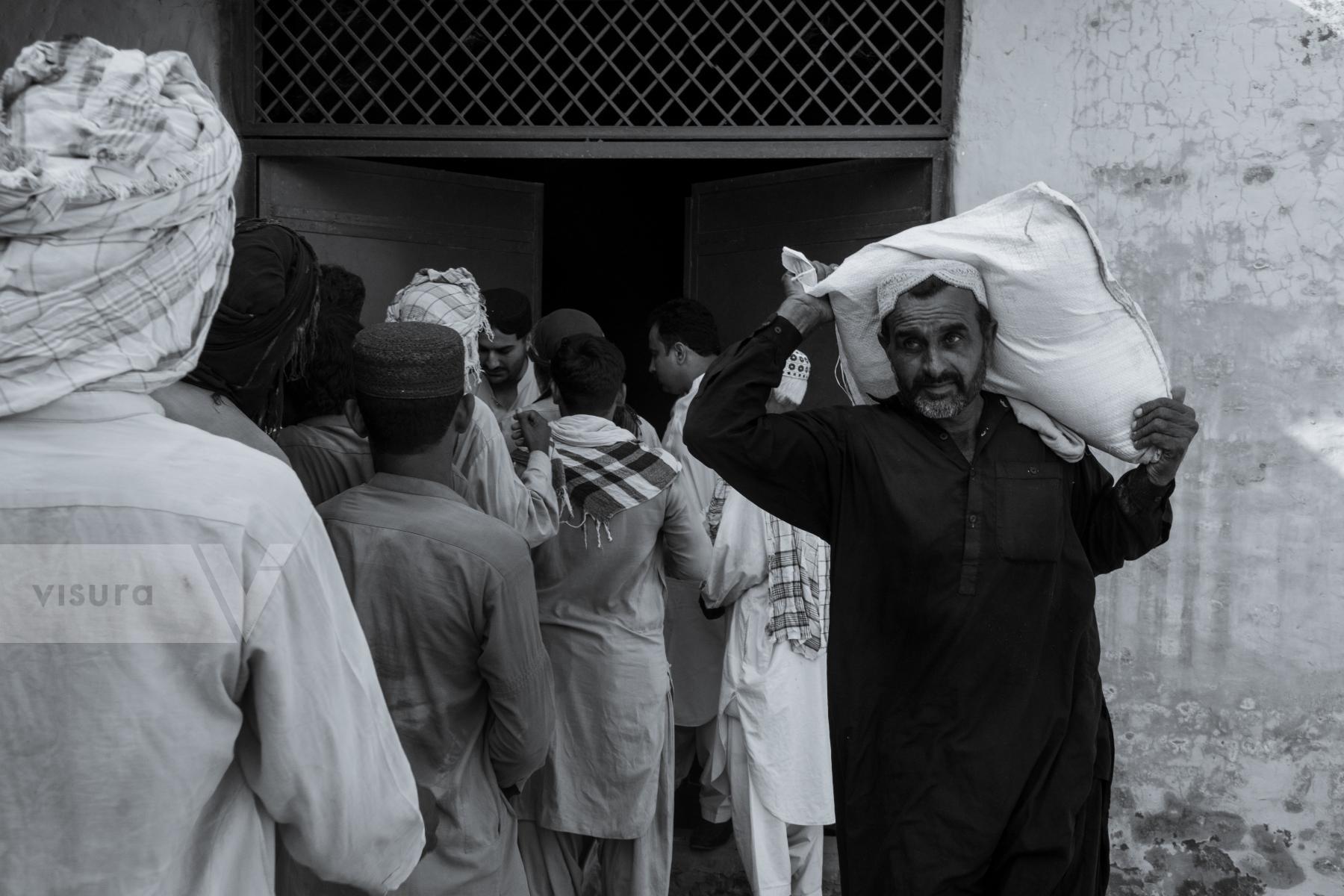
As people lose their livelihood to the floods, it has been made sure that shelter and food are supplied to every household in the village by its Sardar (Landlord). He has even asked the government to help build more sustainable shelters keeping the climate in mind, as the tents which are being provided are not climate-friendly for this region. [Village Jaggan Khan]
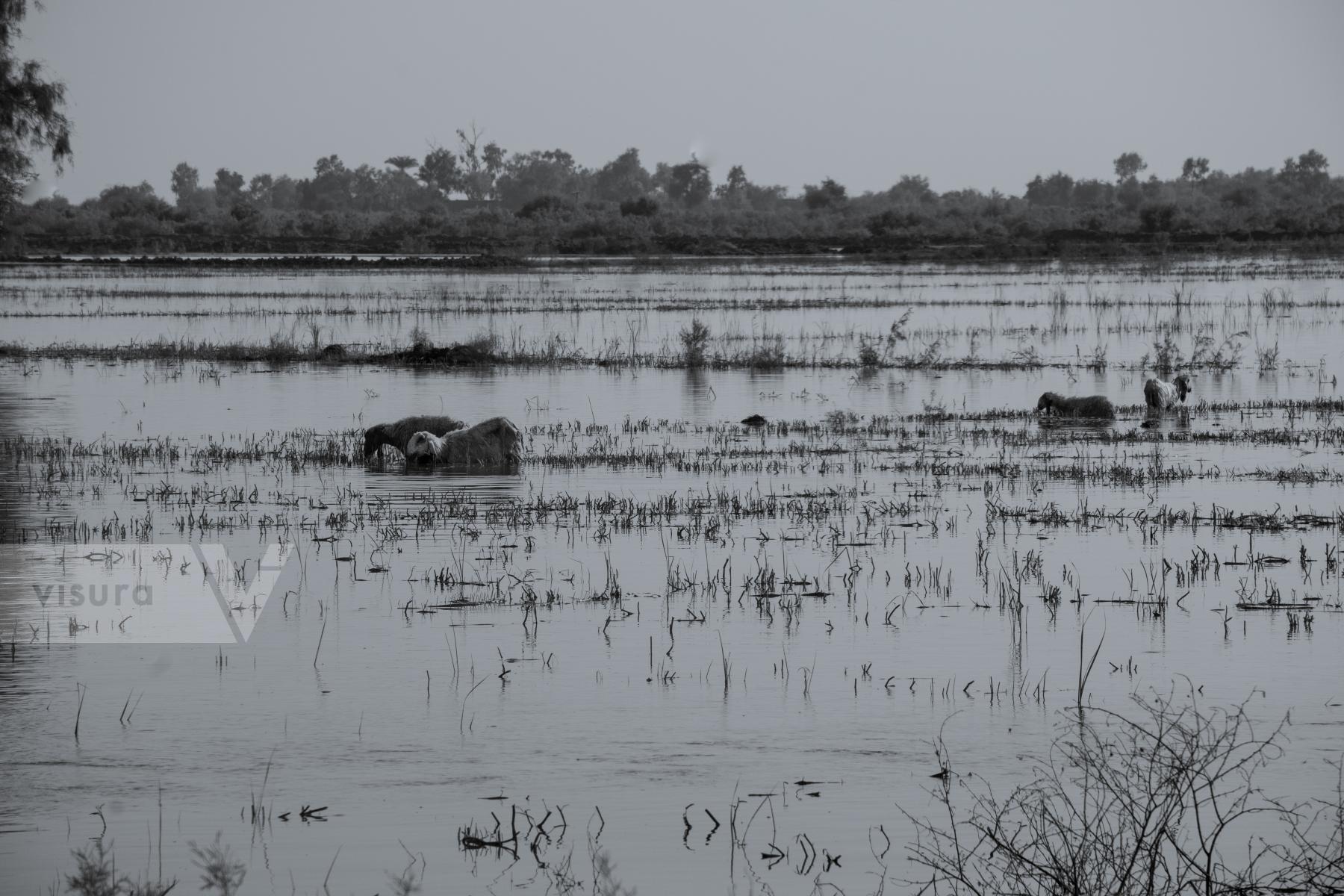
In the village of Sultankot, many fields are now turned into swamps- bearing algae, snakes, mosquitoes, and hazardous diseases.
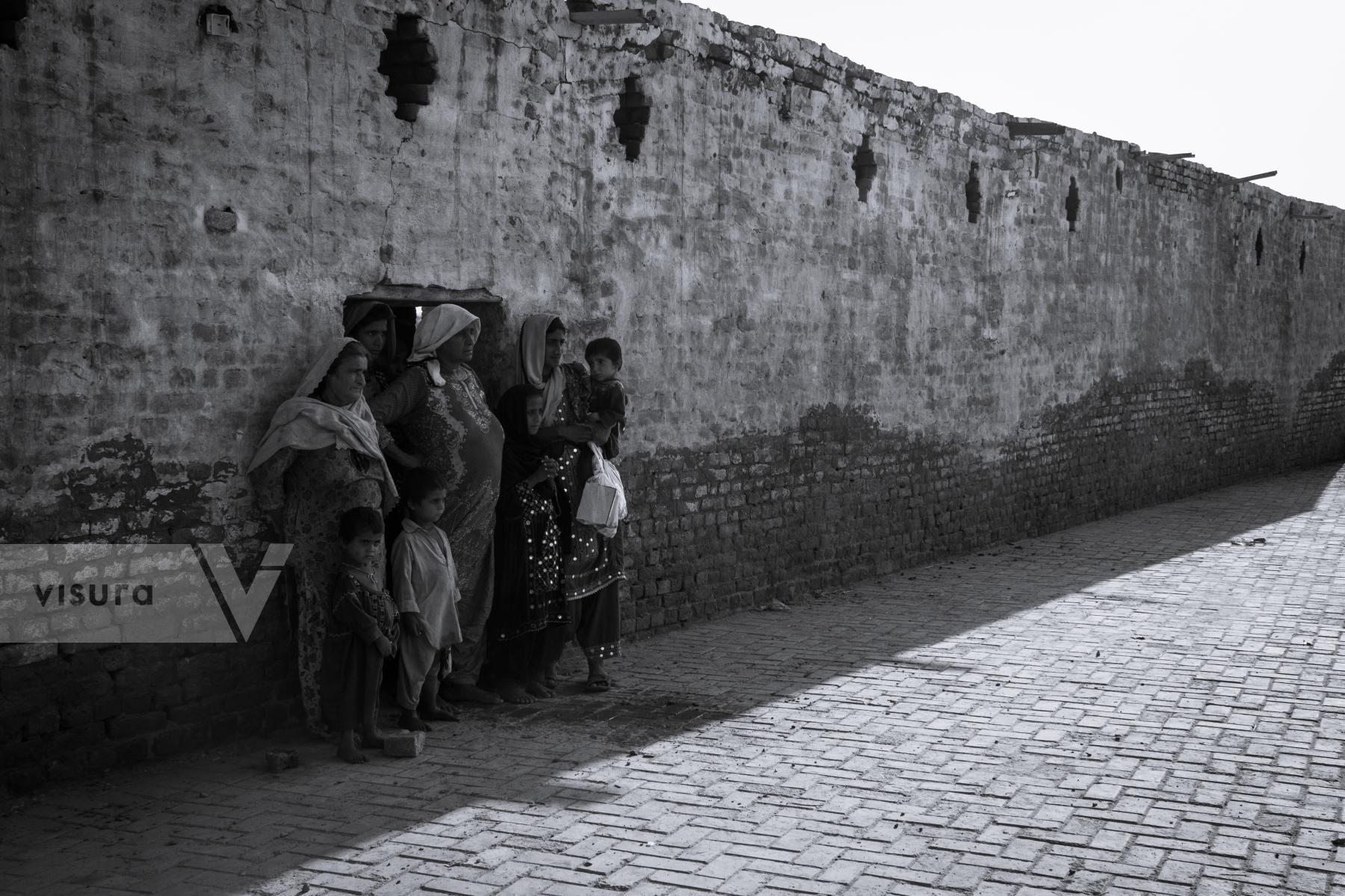
This family has taken refuge in an adjacent village of Pir Shah Jaleel in one of the few standing structures.
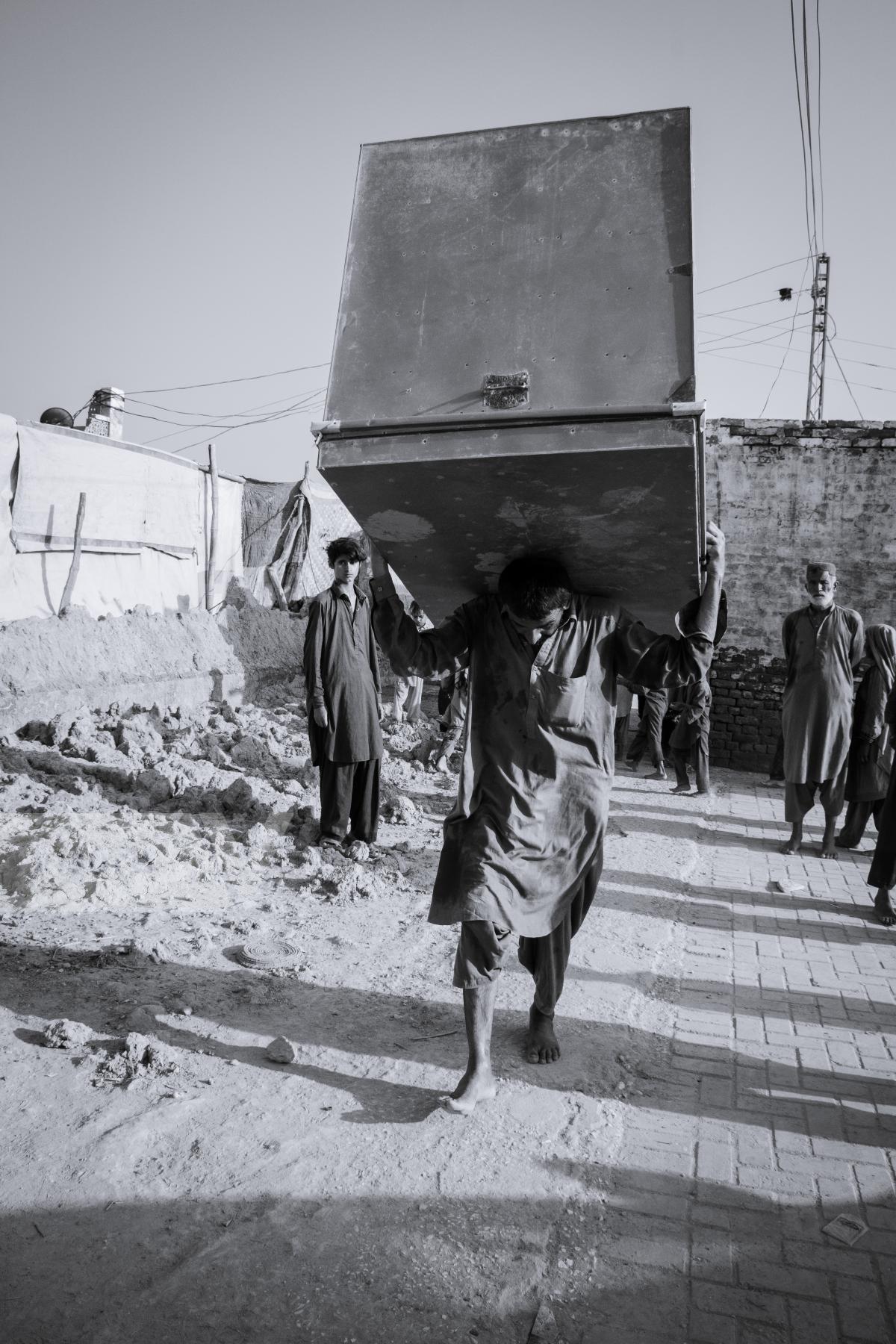
People are still salvaging their belongings from their flooded homes in the village of Sultankot.
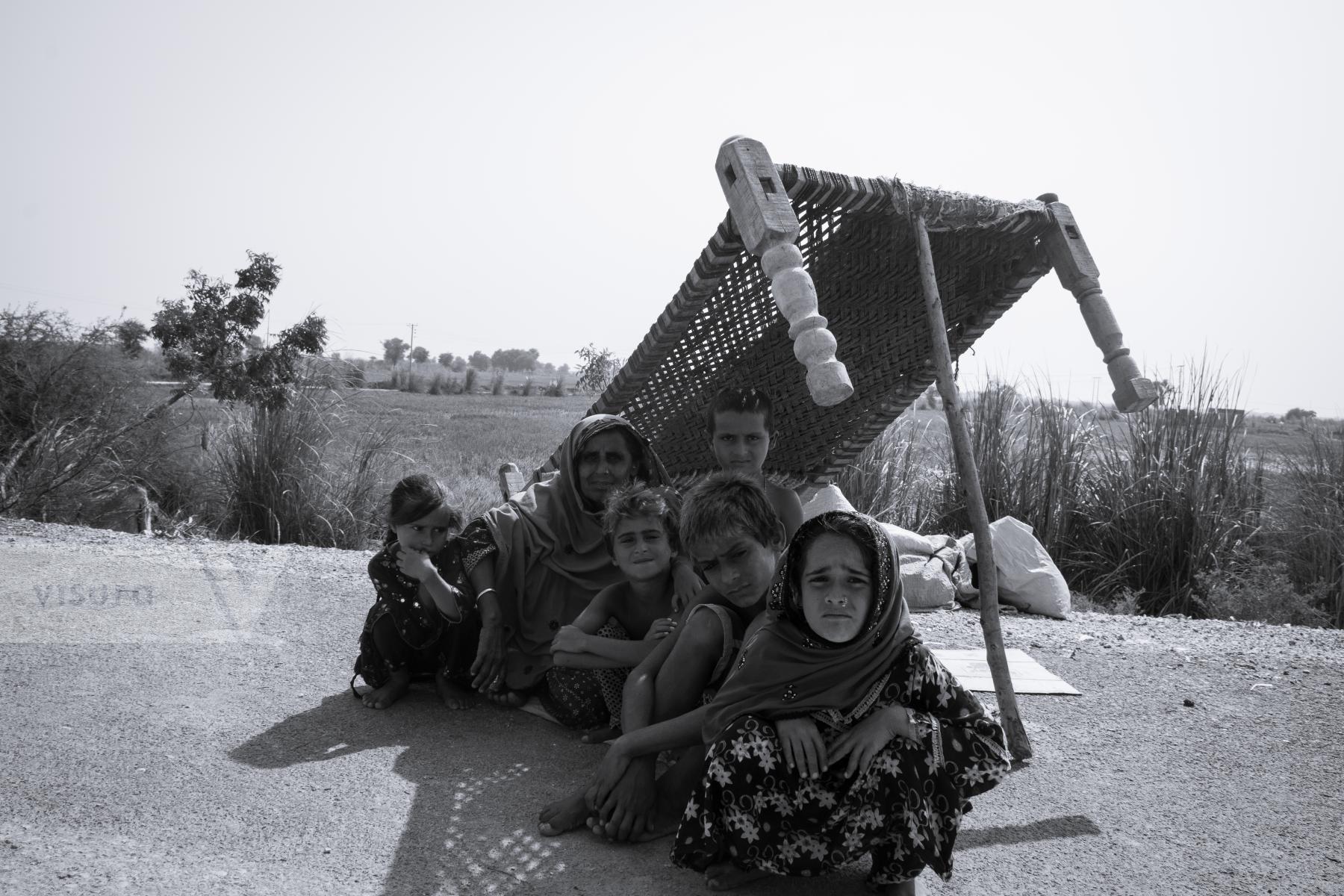
A family waiting under the shade of a cot for relief support on the Sukkur-Shikarpur highway. Most of them arrived here from surrounding villages, in hopes of getting some help. Millions are taking refuge under open skies, without even a tent above them.
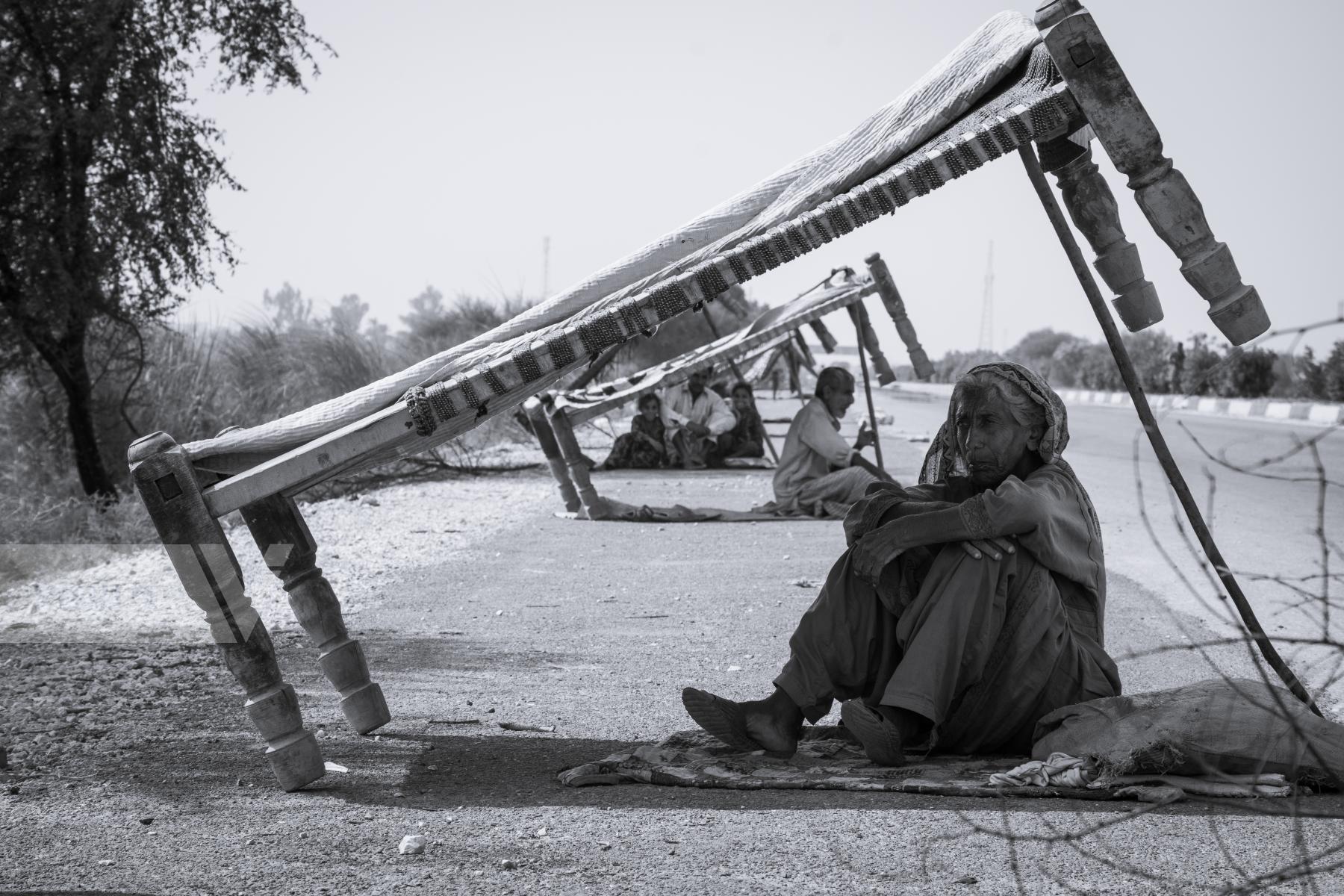
As I was walking on the side of the road, I came across many families sitting under the shade of cots. They are mostly daily wagers and some are farmers too, who lost their source of livelihood due to floods. [Sukkur-Shikarpur highway]
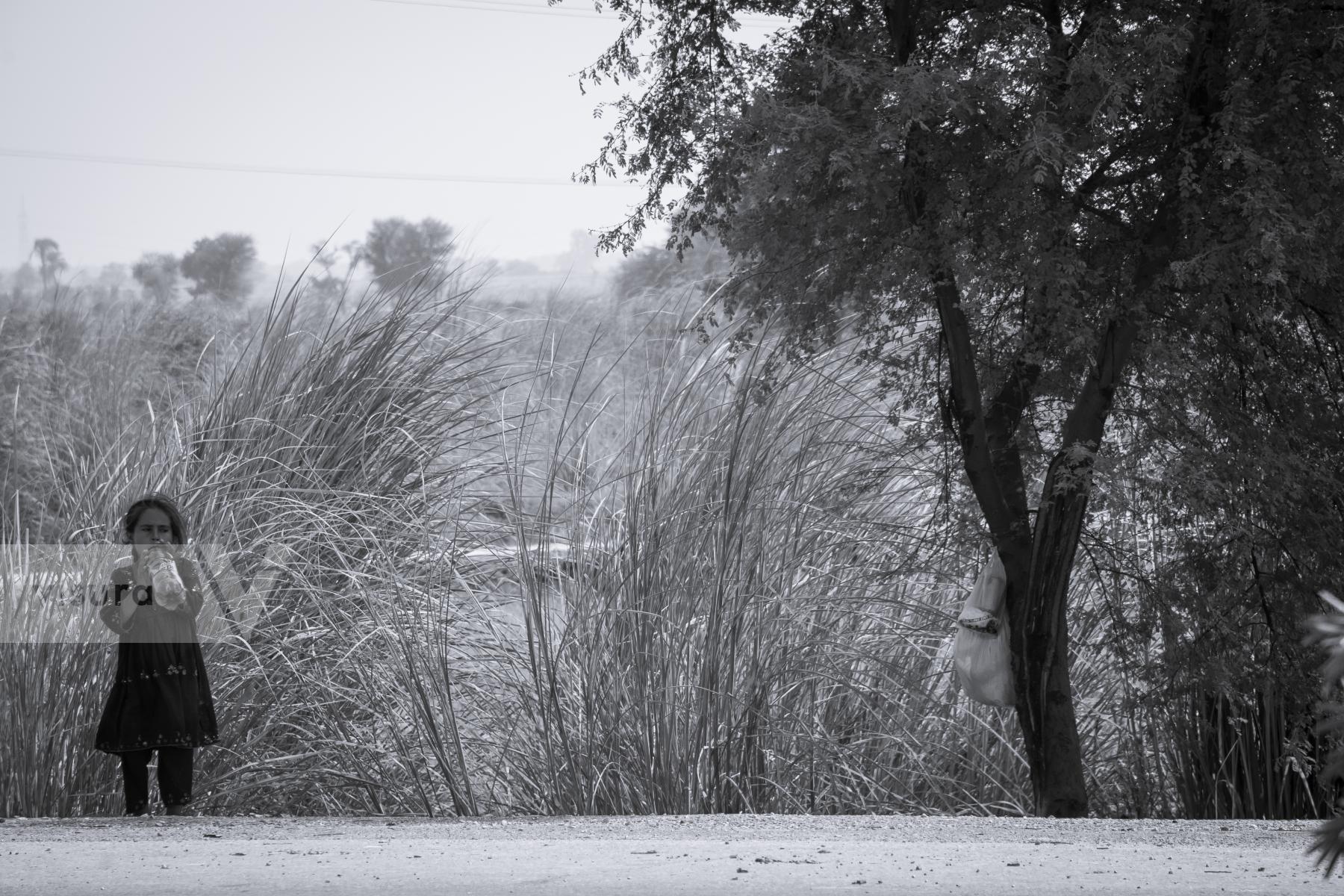
With so many families displaced and having less access to clean water and shelter from the harsh heat, it is evident that the effects of this disaster can bring another state of emergency as health issues are on the rise. [Sukkur-Shikarpur highway]
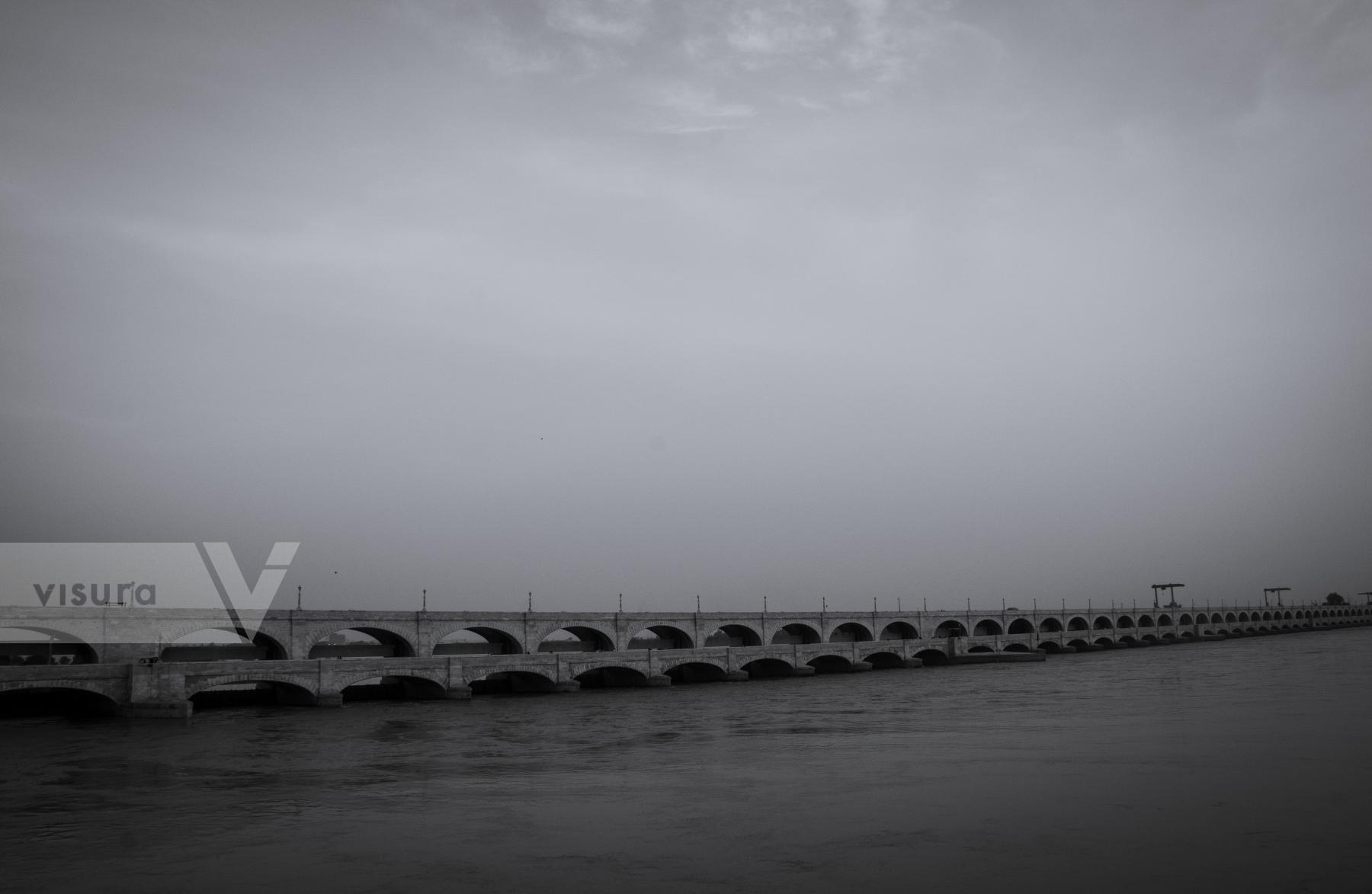
It was built in 1932, Sukkur Barrage was the first barrage, a "riparian iron curtain" to be built on the Indus River, for irrigation and flood control. During the recent horrific monsoon spell, when Indus flooded, this barrage failed to control the water pressure as out of its 66 spans(flood gates), only a few are functional.
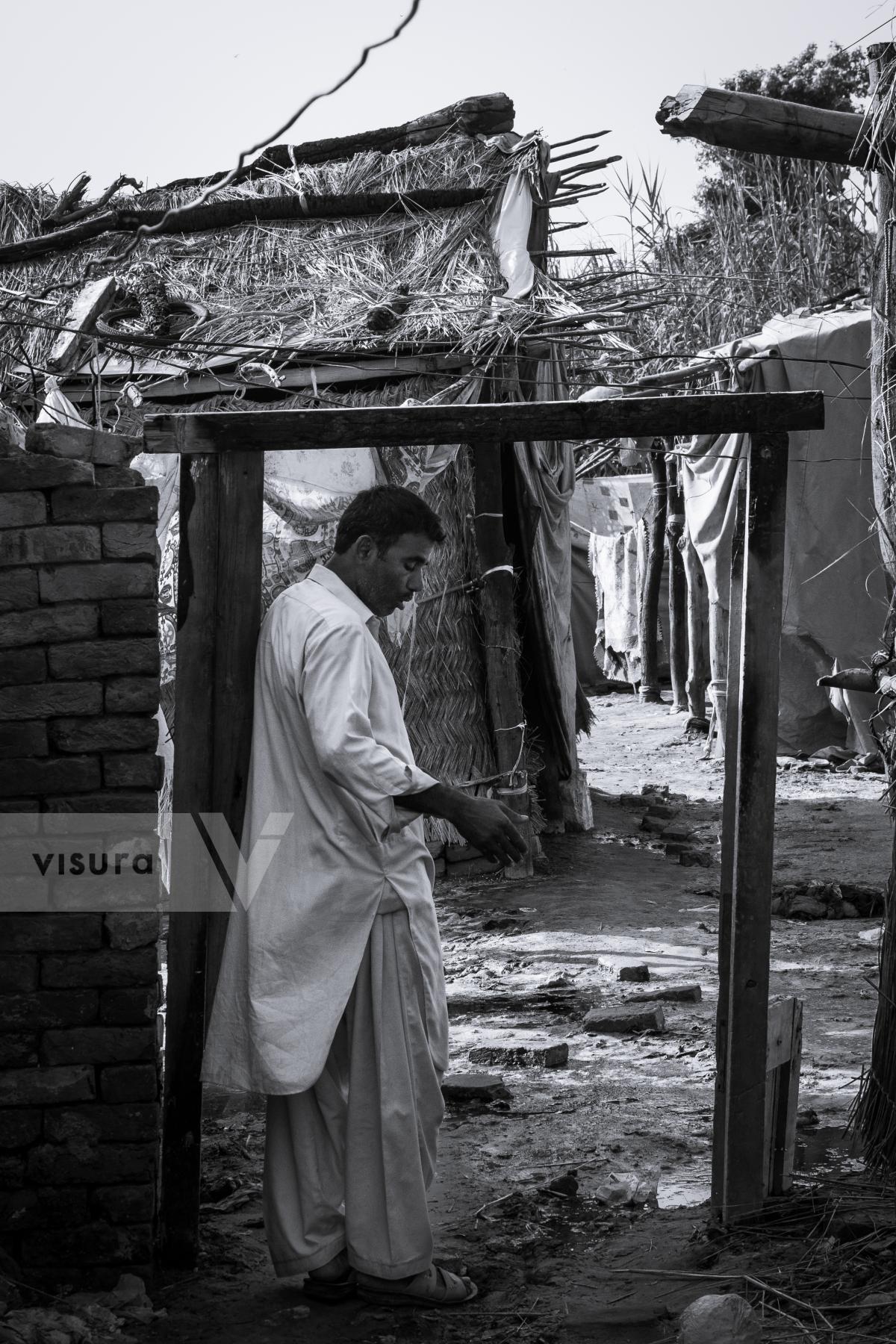
Ghulam Qadir Mirani showed his neighborhood in Wasapur village which was flooded by rainwater at Zero Point, old Sukkur road. This neighborhood has a mix of ethnicities living together. There are Christians, Hindus, and Muslims; all living in a close-knit circle. [Zero Point, Old Sukkur road]
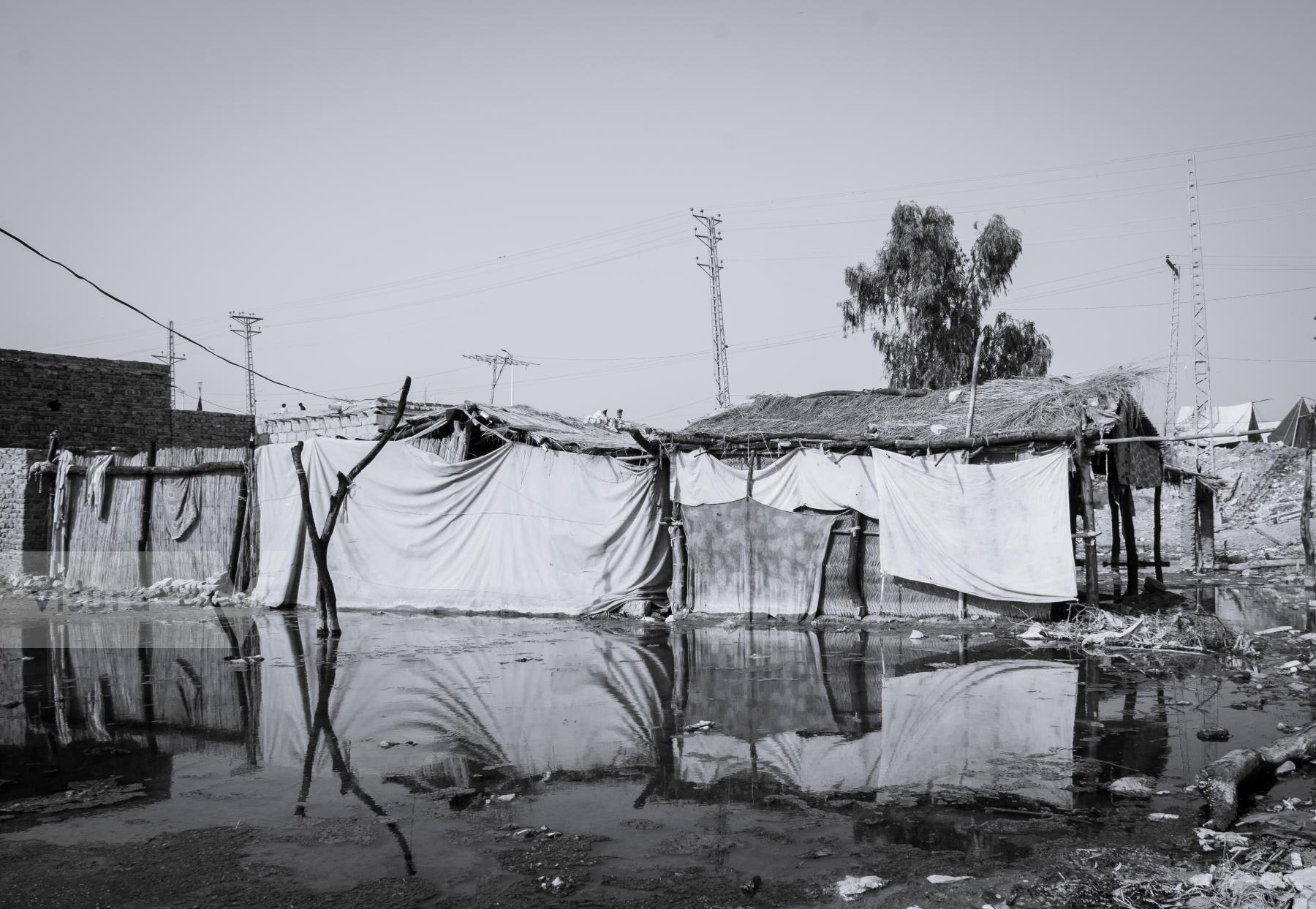
Most of the roofs have collapsed and the land around their home is damp, brackish, and foul from stagnant rainwater. There were 5 homes in this empty space, which were burned and collapsed during the flood. All that remains, are burnt wood branches which were holding their roofs. Most of the families from this neighborhood is living in tents on the roads.
[Zero Point, Old Sukkur road]
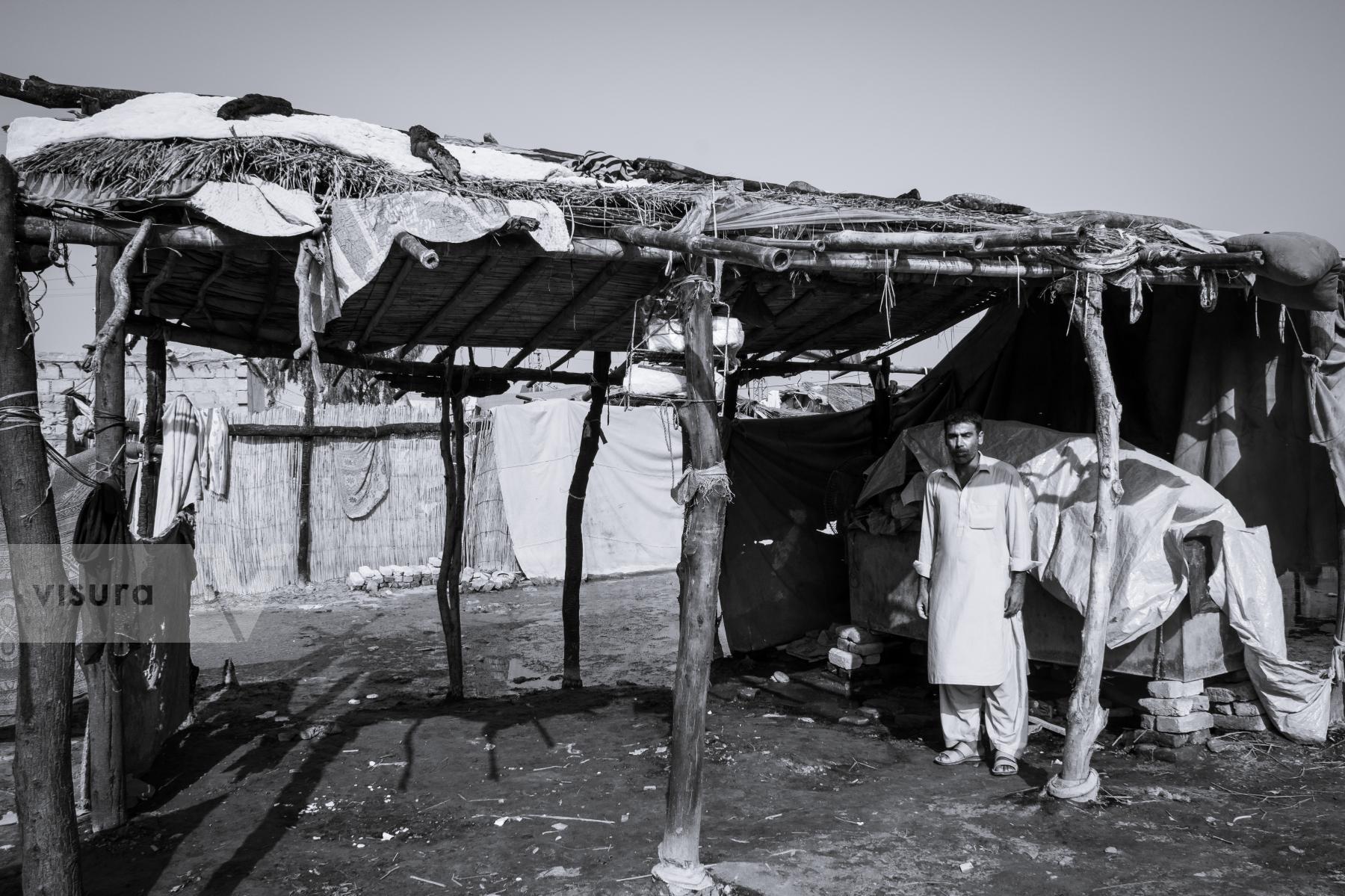
This is Ghulam Qadir Mirani's home, or what is left of it. Most of his belongings were burnt in the fire, what remains is a steel trunk and some other household items which he salvaged from the rubble. [Zero Point, Old Sukkur road]
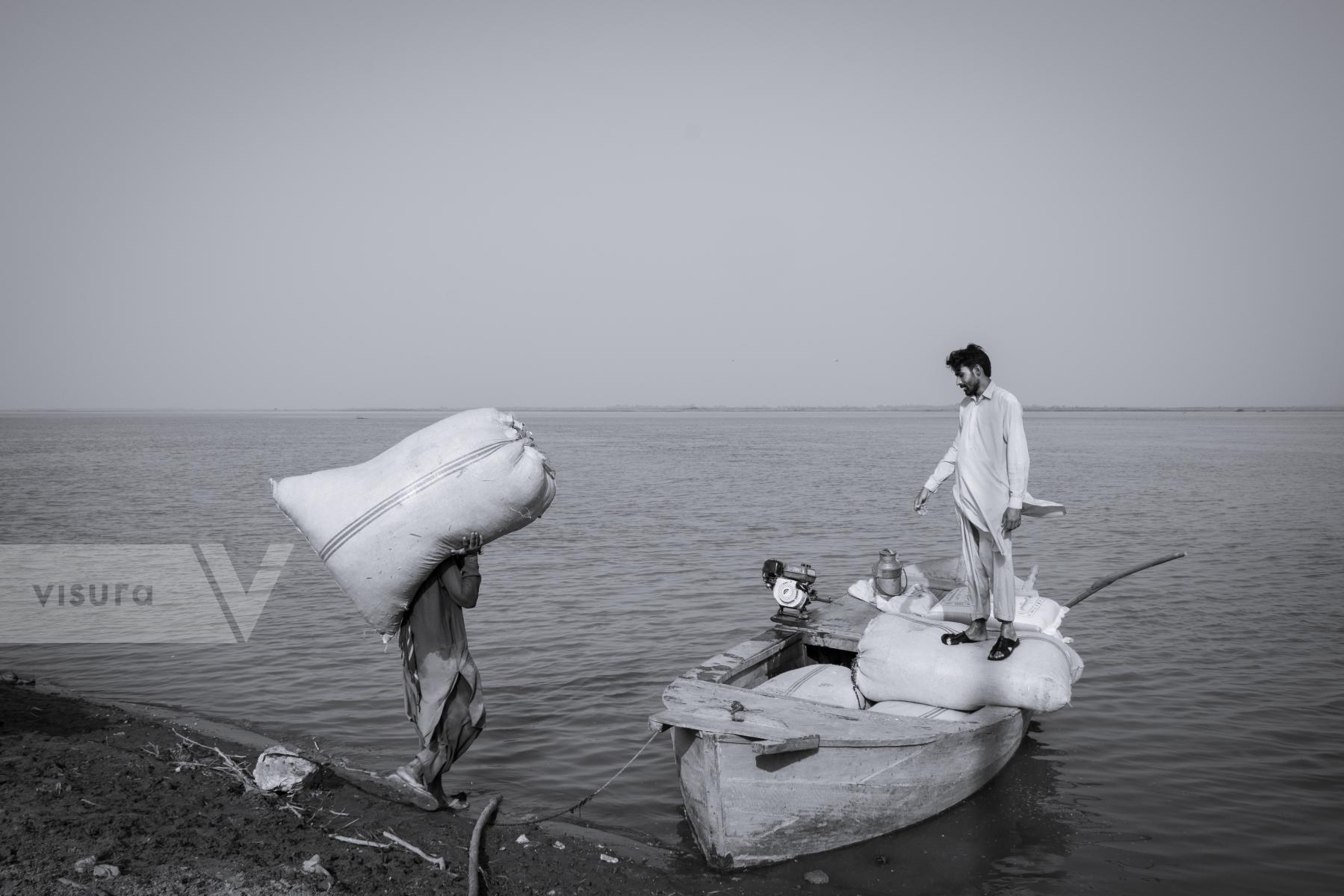
Extensive damage to roads and bridges is further delaying the delivery of humanitarian aid in the hardest hit regions. There are some remote islands around Sukkur, near the west bank of Indus which are still under flood water. These men are carrying sacks of straw and sand to soak the stagnant water inside their homes. They have not left their islands, instead, they have transferred their cattle to Zero point and women with children. But most of them are still living on the flooded islands. [Zero Point, Old Sukkur road]
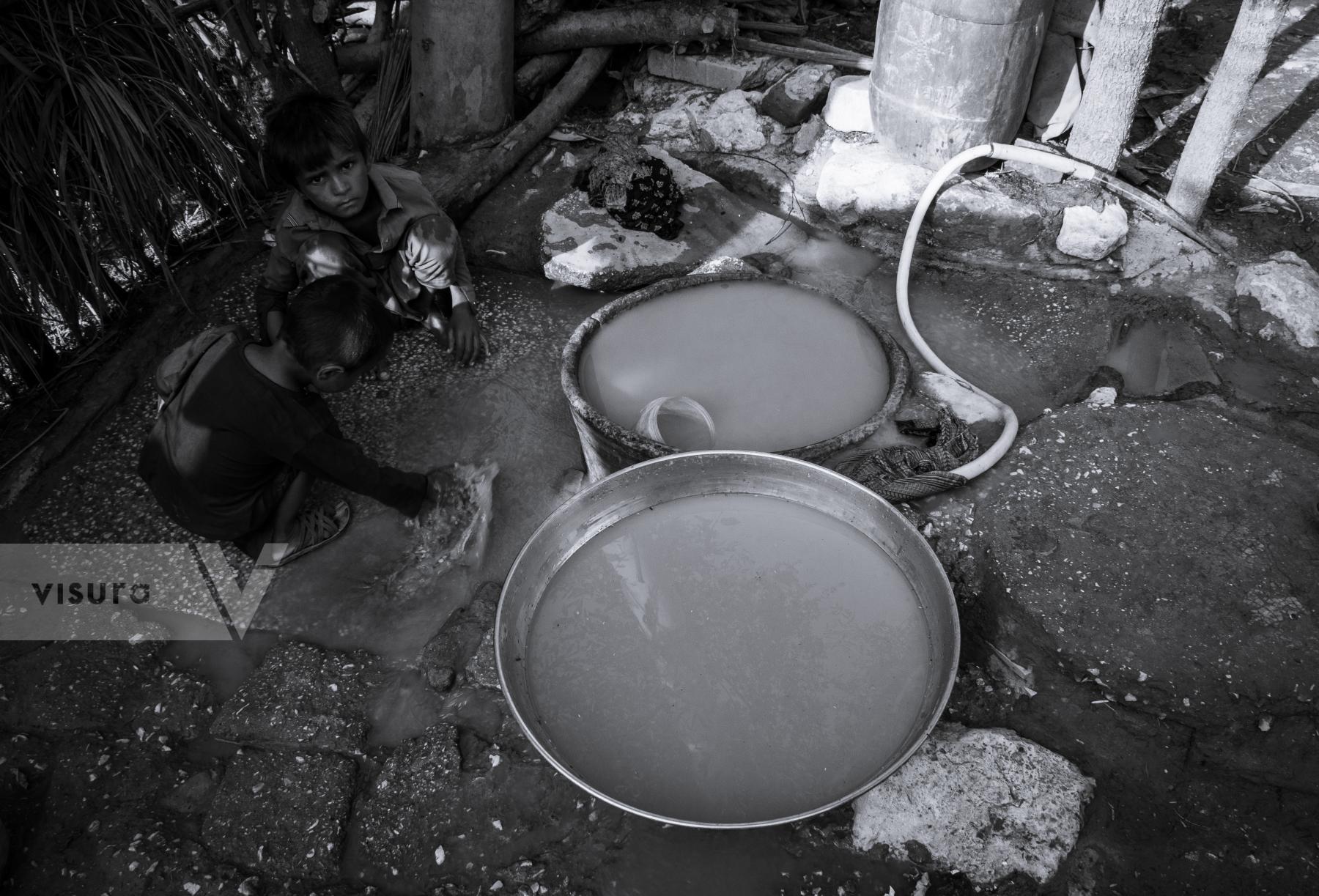
As I approach one of the makeshift shelters of a family, living at the edge of the river bank. A woman sitting on a cot started asking me questions about where I came from and for who I work, and if I brought any relief goods for them. It was clear that she was angry and tired of people coming here and taking pictures and doing nothing to comfort them. "I have lost my dear sister during rains, she was severely ill. And now I am fearful for my children, as the water quality has gotten worse. I have lost almost everything to floods, I can't lose any more of my family." [Zero Point, Old Sukkur road]
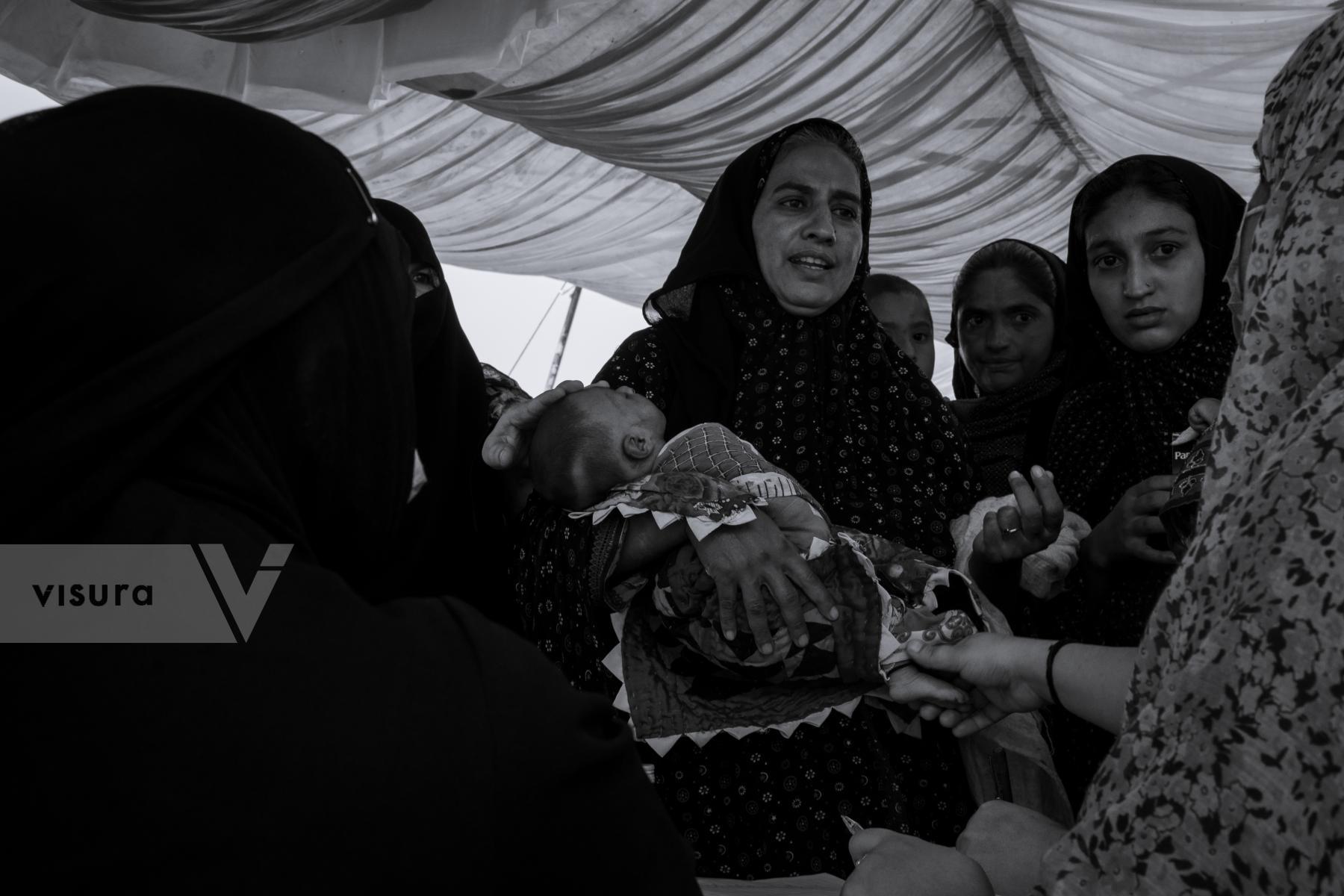
In the midst of this catastrophe, medical camps are as crucial as safe drinking water. We found this medical camp at Kundan Residency on the Shikarpur highway. People were coming here from as far as a 10kms radius area to get treated. Most of them are women and children.
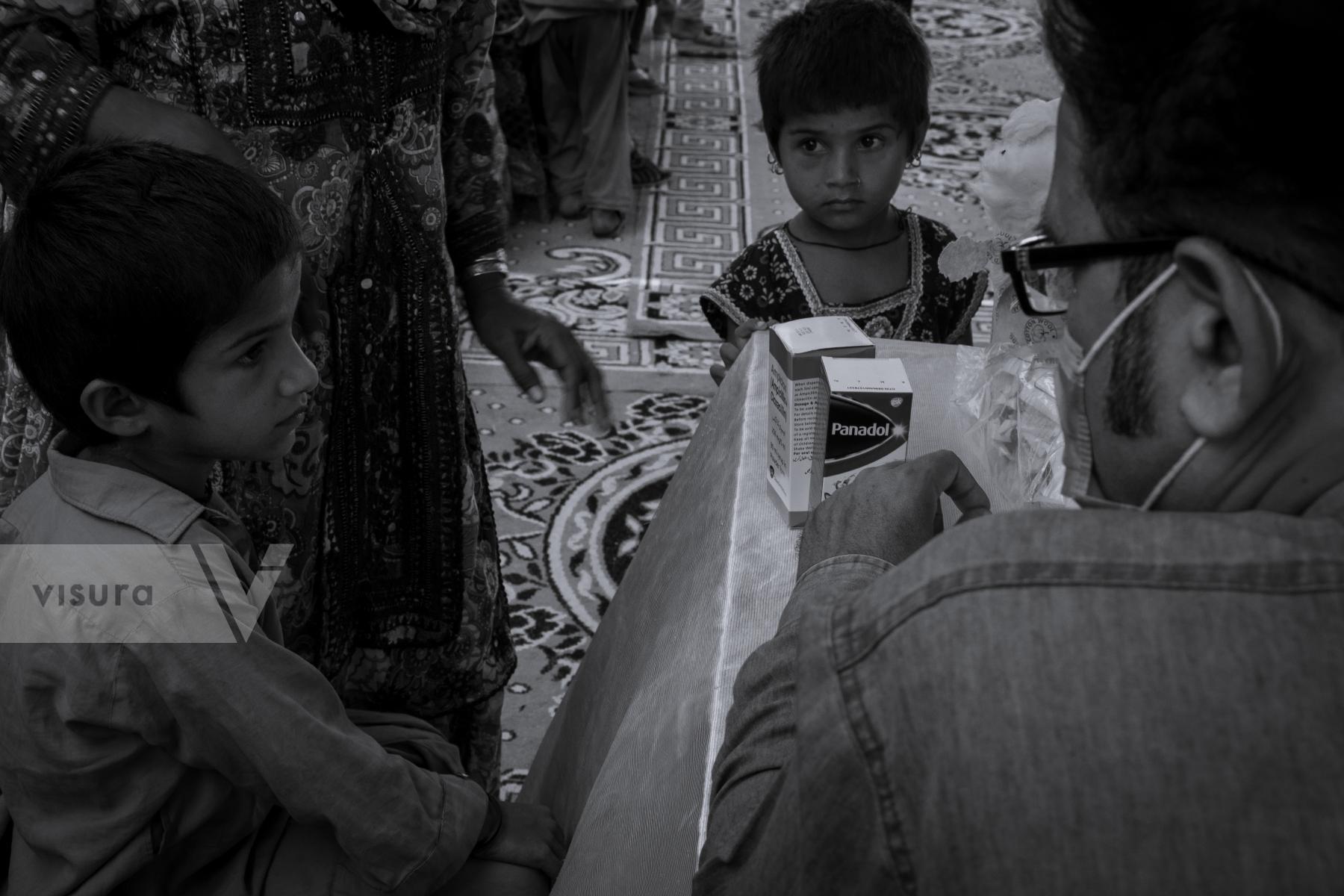
A mother brought her two kids, who were experiencing Malaria symptoms. Due to the standing flood waters, cases of malaria and skin diseases are rising in this area. [Kundan Residency medical camp, Shikarpur highway]
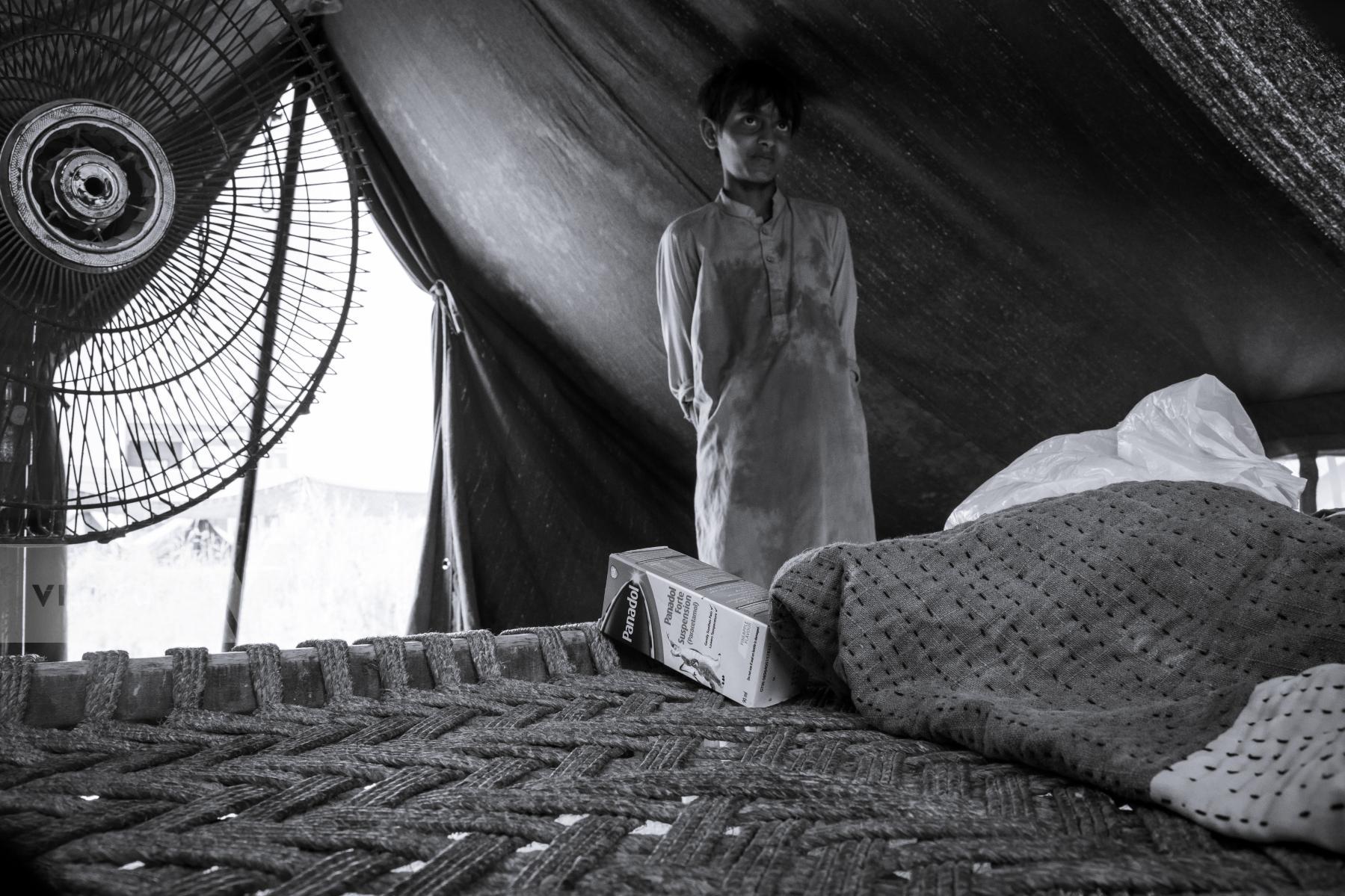
This boy has just recovered from malaria. Doctors and health experts are fearful of the outbreak of opportunistic vector-borne diseases, which can spread like wildfire among the temporary encampments. [Kundan Residency camps, Shikarpur highway]
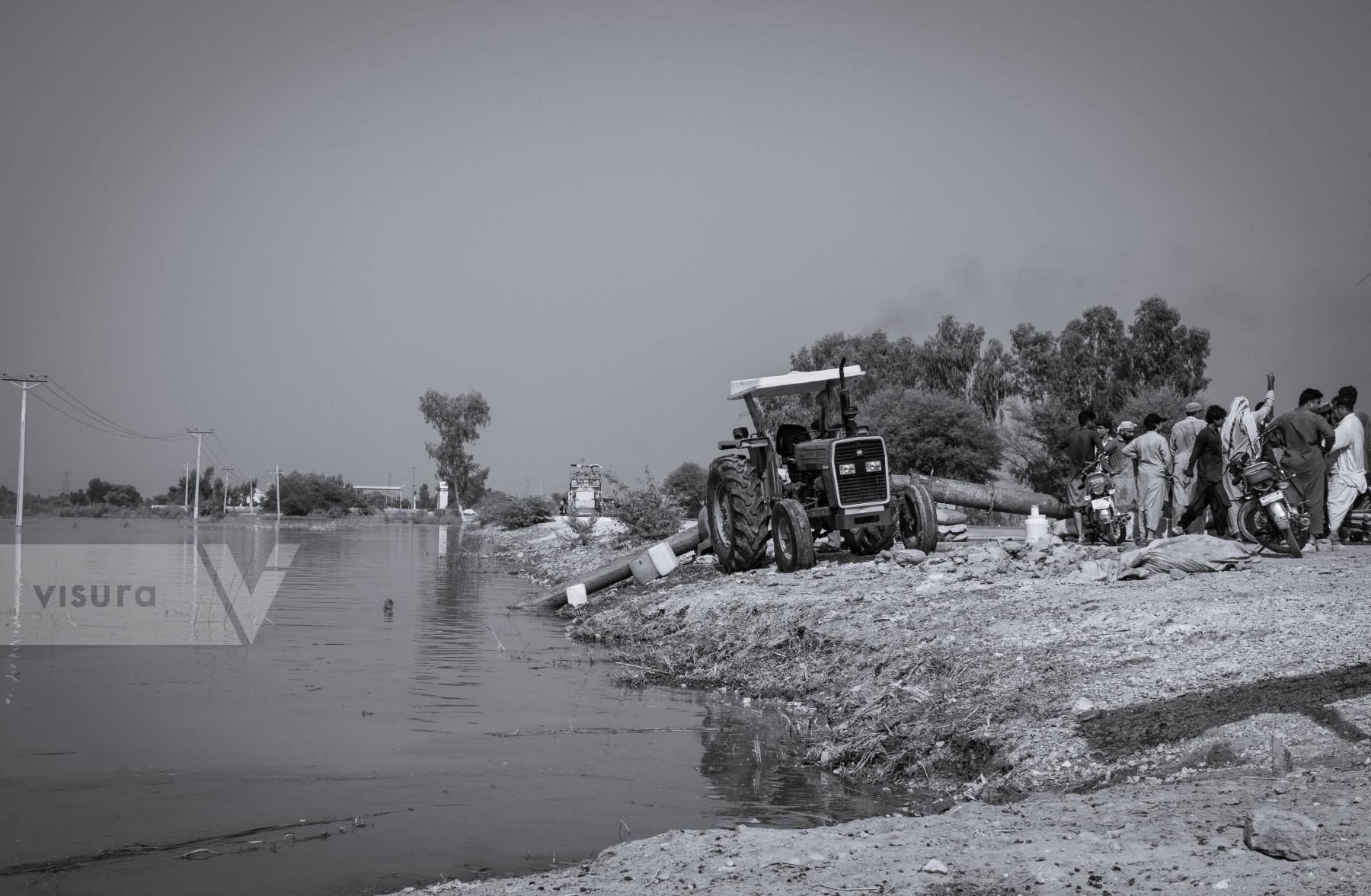
In Haji Khuwasti Brohi village, people were draining this flooded rice field, releasing the water into the other field across the road. This flooded water has not just taken their fields but also the small pathways reaching inside their village into a local dispensary.
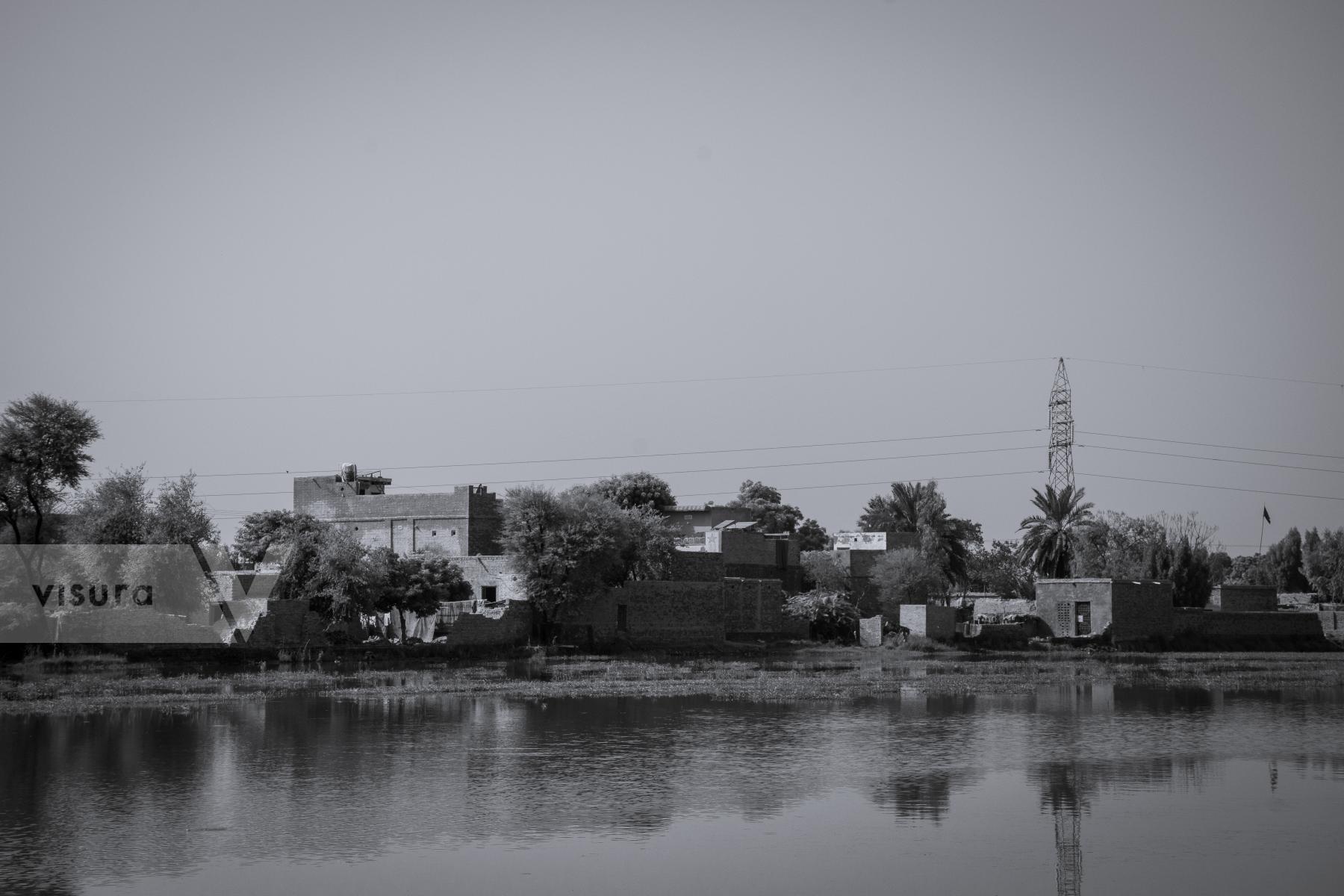
The bases of these standing homes are now weak due to the standing water and can collapse if not repaired during further rainfall. [Haji Khuwasti Brohi village]
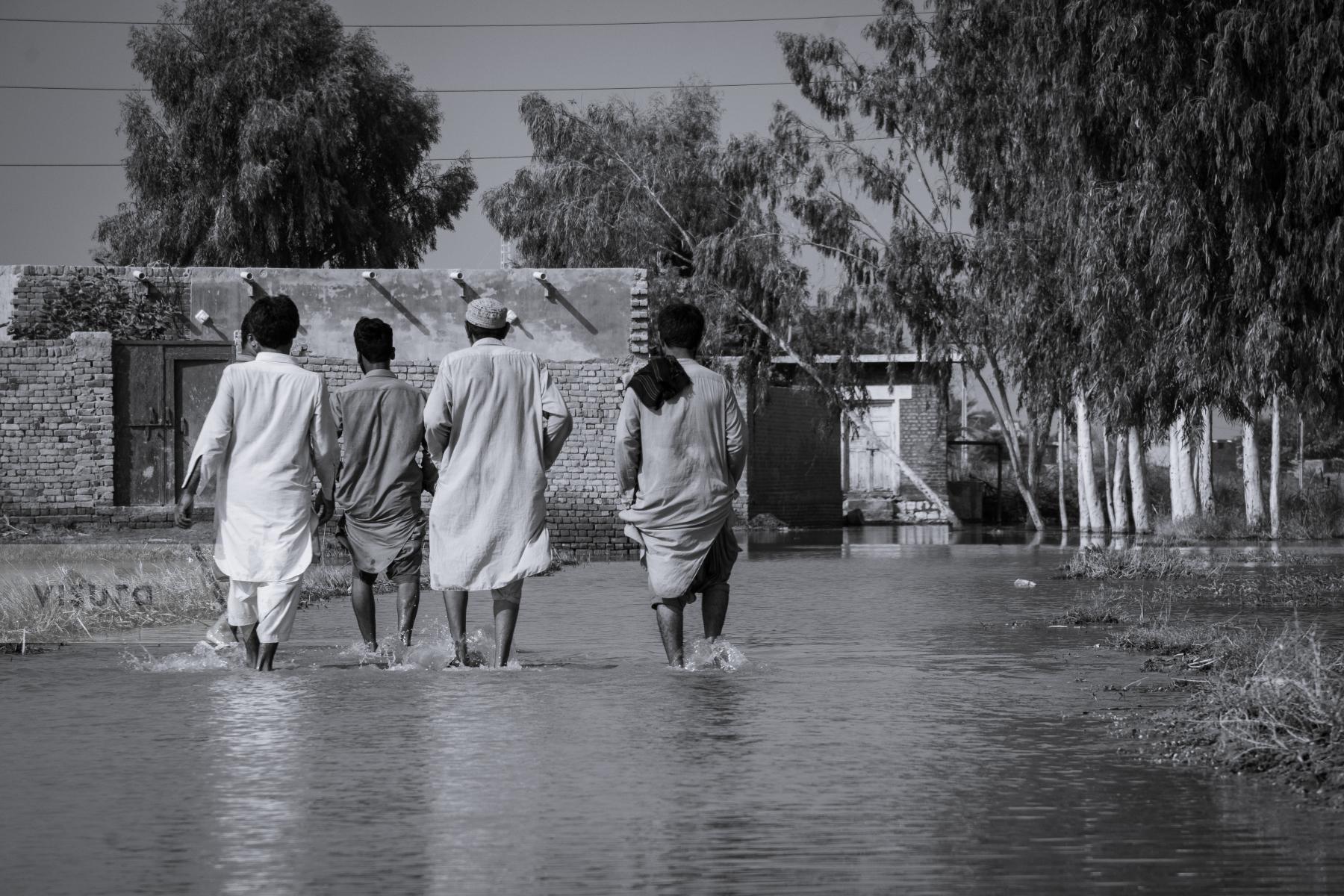
The residents of Haji Khuwasti Brohi village head home in the late afternoon hours. Most of the people living in this village are daily wagers, some have small tuckshops that they run in a nearby marketplace.
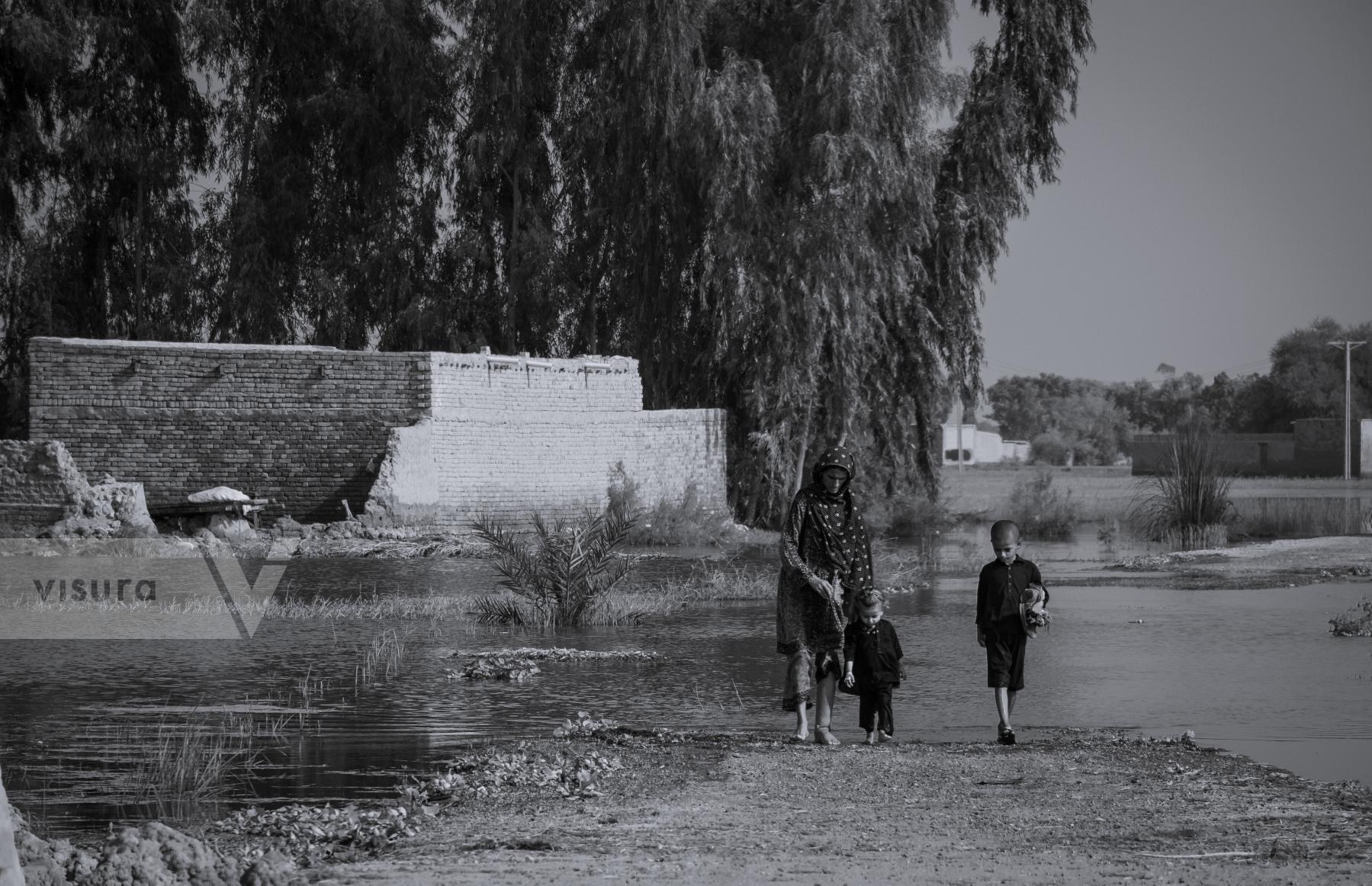
A woman helps her children cross the flooded street in her village to reach the main highway. [Shikarpur highway]






































